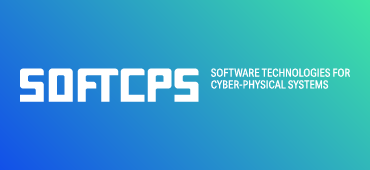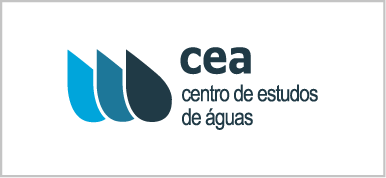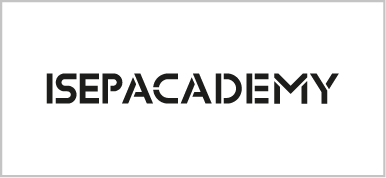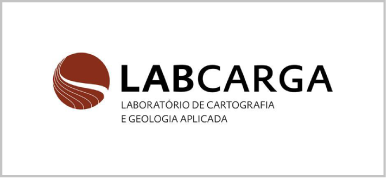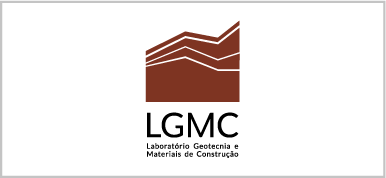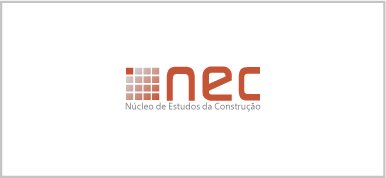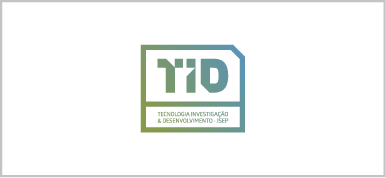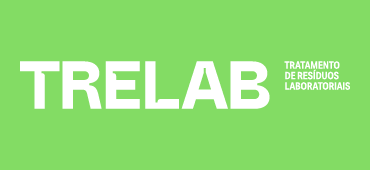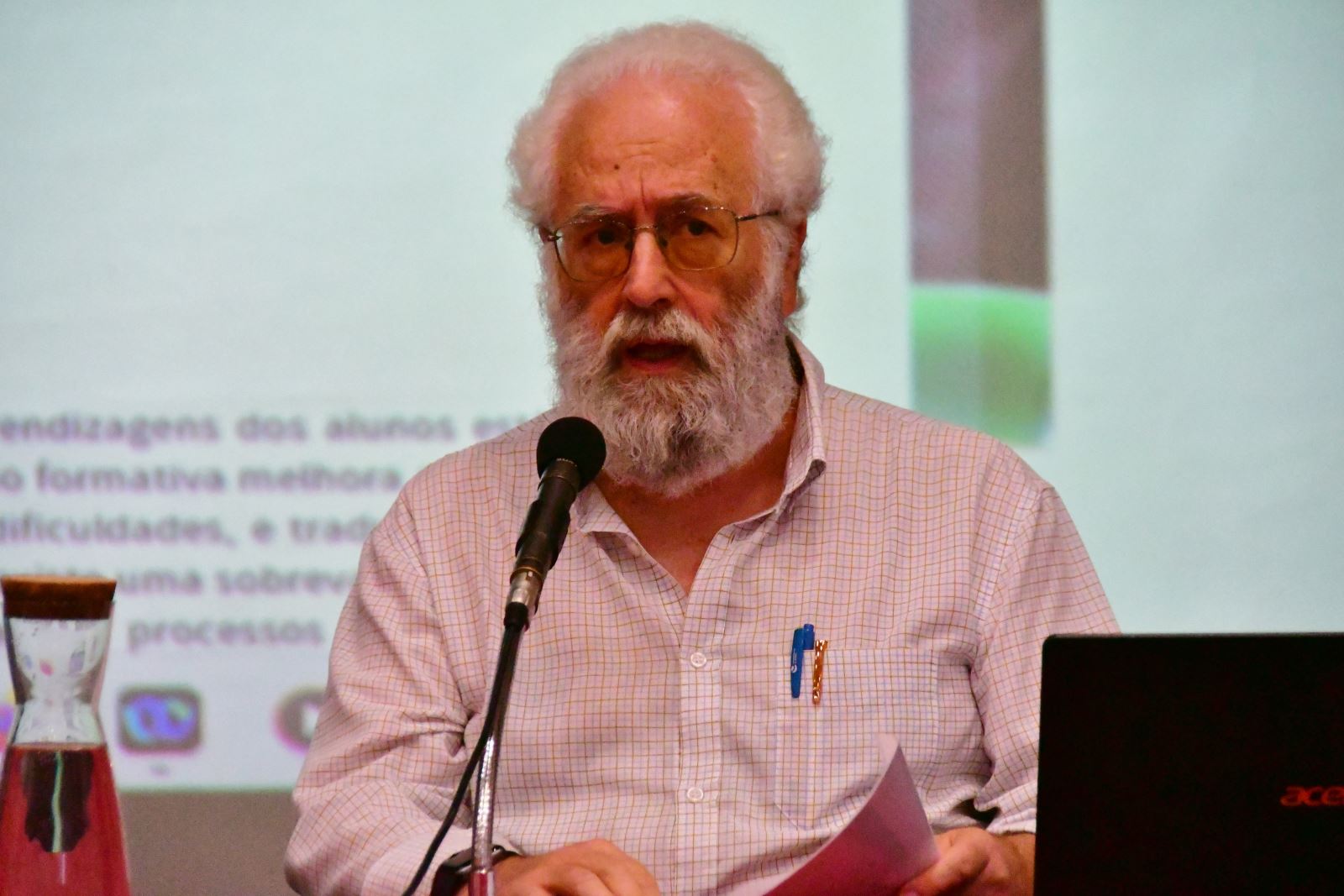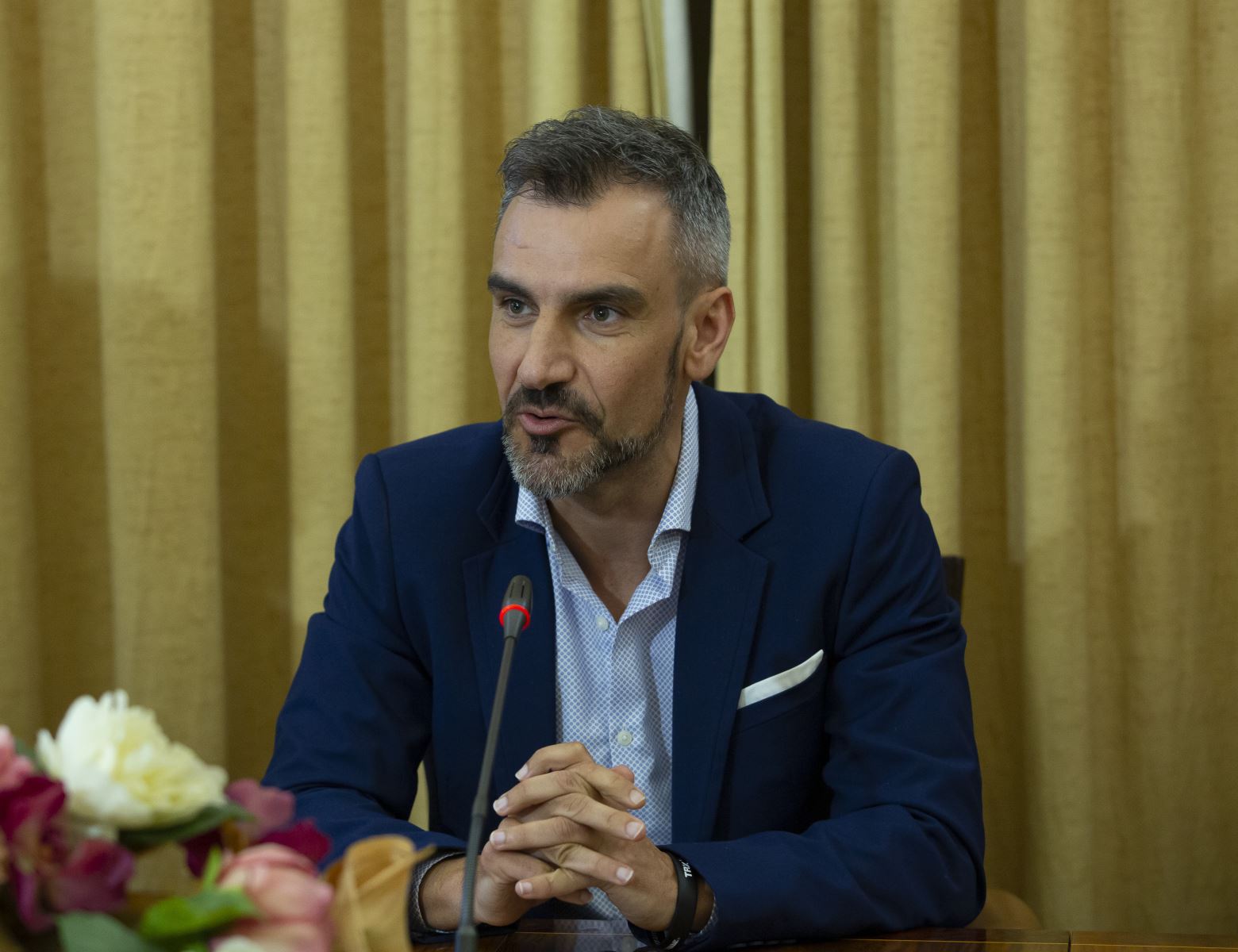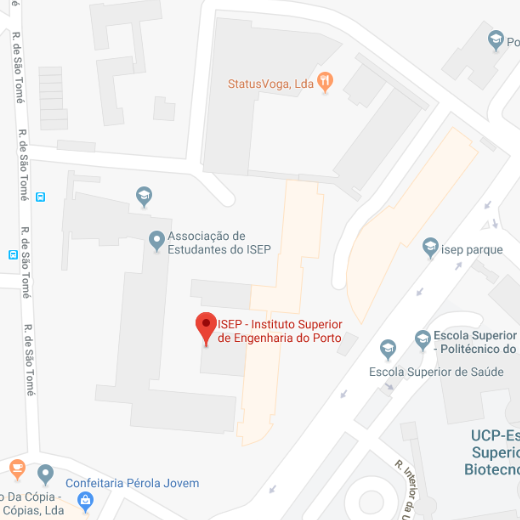
INVITED SPEAKERS
2025/2026
JANUARY 28TH 2026, 4:00PM (GMT)
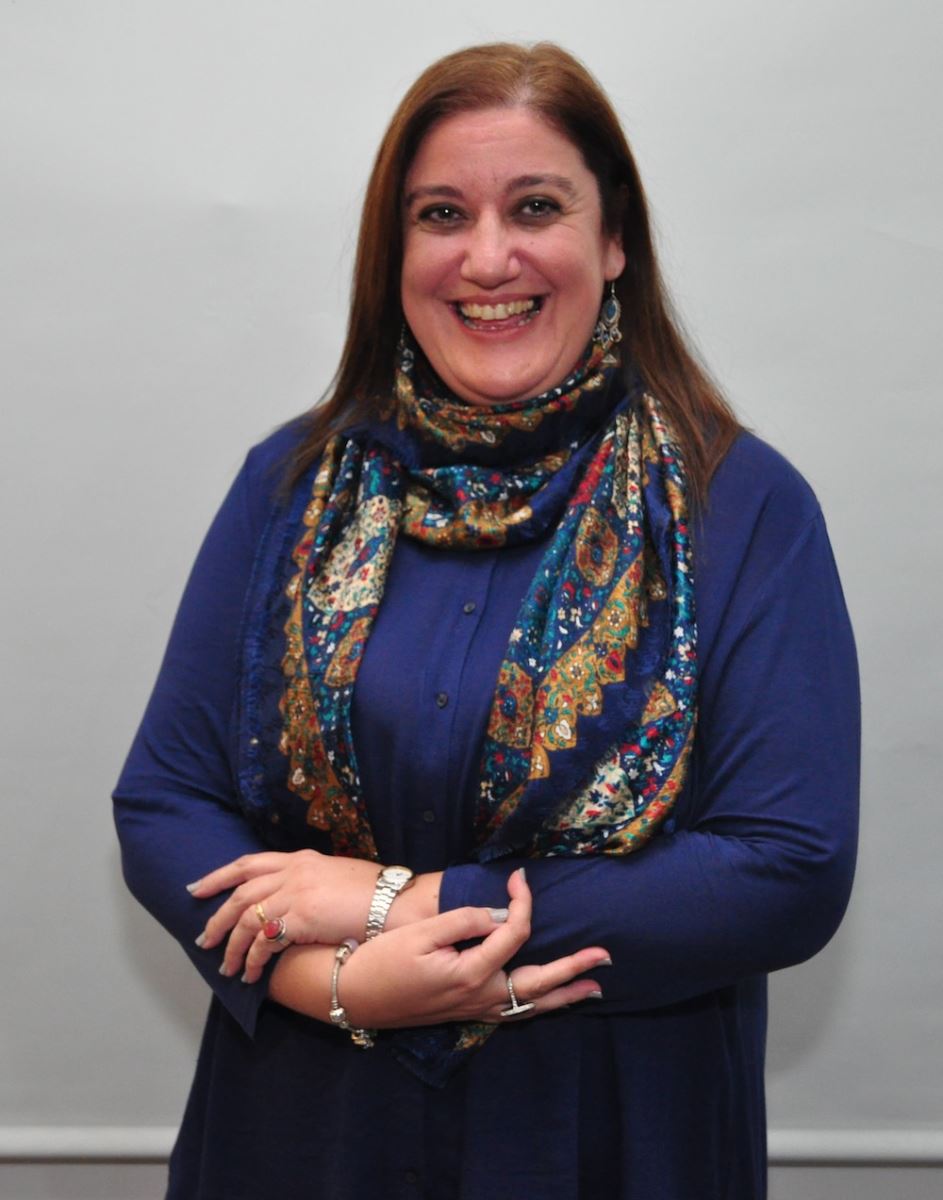
Ximena Valente Hervier
Human-Centered AI in Education: Designing Meaningful Learning Experiences
Arti?cial Intelligence is increasingly in?uencing higher education, particularly inengineering and technology-driven environments. However, its educational impactdepends not only on technical capabilities, but on how intentionally AI is integratedinto learning design to foster critical thinking, innovative problem-solving, andre?ective practice.
This webinar explores a human-centered approach to AI in education, focusing onhow AI can be used to support innovative thinking and deeper learning rather thanpassive consumption or automation. AI is framed as a cognitive and creativepartner that, when properly designed, can enhance inquiry, experimentation, anddecision-making within learning processes.
Drawing on design sprints for learning and agile educational frameworks such aseduScrum, the session examines how short, iterative cycles can be used to prototypeand re?ne learning experiences that integrate AI while preserving pedagogicalintent. Participants will explore how these approaches support collaboration,feedback, learner agency, and continuous improvement in higher education contexts.
In addition, the webinar addresses essential ethical considerations, including bias,over-reliance on AI, transparency, and the development of critical judgment. Particular attention is given to the role of educators in cultivating ethical awareness and responsible use of AI among students. The session offers educators and academic leaders a structured framework torethink AI not as a technological shortcut, but as a design resource for meaningful,ethical, and innovation-oriented learning experiences.
Short bio
Ximena Valente Hervier is a strategic consultant, educator, and researcher specialising in innovation in higher education, agile learning design, and human-centred approaches to technology. She is a Partner at Konectica, where she designs and leads education and innovation programmes for public and private organisations across Europe and Latin America.
She is a Lecturer and Researcher at the National University of Rosario (Argentina), teaching in postgraduate programmes in engineering, sustainability, and human resources. Her academic work focuses on epistemology, critical thinking, learning design, and the integration of digital technologies and AI into educational practice.
She has also been responsible for the design and development of institutional e-learning strategies within the university. Ximena combines academic research with extensive practical experience in design sprints for learning, agile educational frameworks such as eduScrum, and
innovation methodologies applied to teaching and professional development. Her work emphasises ethical reflection, learner agency, and the responsible use of AI as a catalyst for critical and innovative thinking in higher education.
JANUARY 14TH 2026, 4:00PM (GMT)

Irina Lyublinskaya
Preparing STEM Teachers for Integrating AI Literacy into Curriculum
This webinar introduces the instructional design of "AI Literacy for Educators," a university-level course developed to prepare preservice teachers for the complex task of integrating AI literacy into diverse K-12 disciplines. Moving beyond traditional, programming-centric approaches, the course is theoretically grounded in the novel Pedagogical Framework for AI Literacy, which provides educators with practical, research-informed strategies for cultivating AI literacy across grade bands and subject areas. Drawing on data from cross-national implementations in the United States and China, the session will showcase examples of lesson artifacts designed by preservice teachers that successfully integrate core AI concepts into existing curricula.
Short bio
Dr. Irina Lyublinskaya is a Professor of Mathematics and Education at Teachers College, Columbia University, New York. She holds Ph.D. in Theoretical and Mathematical Physics from the Leningrad State University, Russia. She taught high school and university mathematics and science for 40 years. She is a recipient of various awards, including Radioshack/Tandy Prize for Teaching Excellence in Mathematics, Science, and Computer Science, NSTA Distinguished Science Teaching Award and citation, Education’s Unsung Heroes Award for innovation in the classroom, and NSTA Vernier Technology Award. Her research interests are in the areas of AI literacy, STEM education, teacher education, curriculum development, and international comparative education. She authored/co-authored 23 books, 16 book chapters, and over 100 peer-reviewed papers and proceedings in these fields.
DECEMBER 10TH 2025, 4:00PM (GMT)
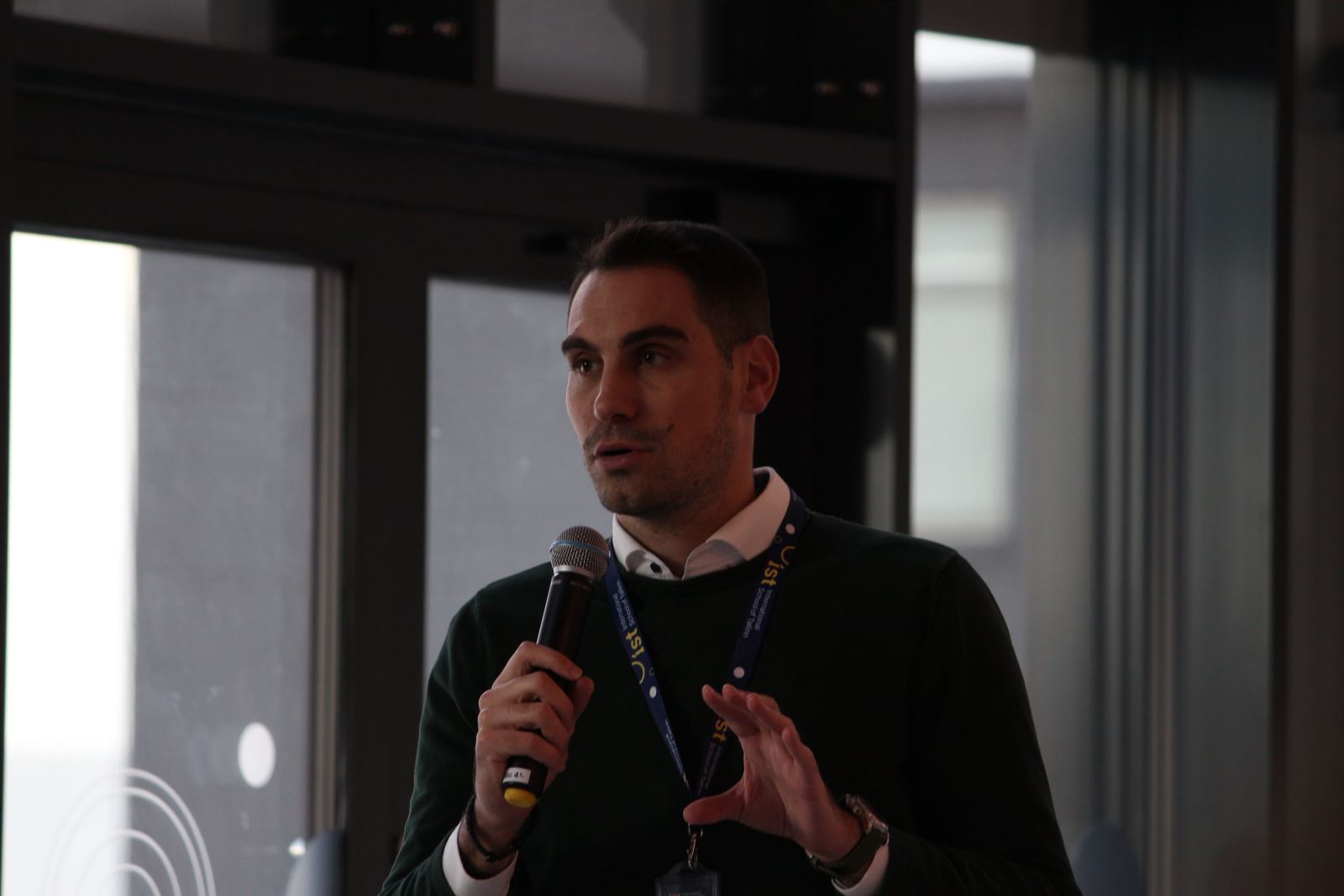
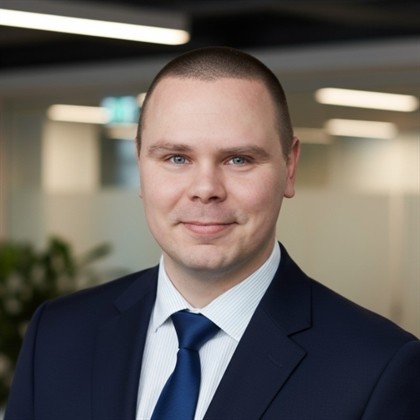
Slavko Rakic Joosep Parts
Reinventing Education: AI, Robotics & Cybersecurity for the Next-Generation Classroom
This webinar will explore how artificial intelligence and robotics are reshaping modern education through innovative, secure, and pedagogically grounded approaches. The session will first introduce the latest global and Estonian developments in AI readiness, teacher upskilling, and AI literacy, highlighting practical ways in which AI can support hybrid intelligent assessment systems that enhance feedback, personalization, and student learning outcomes. Building on this, the webinar will examine the use of educational and teleoperated robots for teaching, training, and onboarding, with special attention to privacy-enhancing technologies and cybersecurity challenges that arise in human–robot interaction. By combining pedagogical innovation with robust security considerations, the webinar will provide participants with a comprehensive understanding of how AI and robotics can be ethically and effectively integrated into future learning environments, ensuring both educational value and responsible digital transformation.
Short bio
Dr. Slavko Rakic is a Research Professor at the TalTech IT College and an Assistant Professor at the University of Novi Sad. His work focuses on AI didactics, hybrid intelligent assessment systems, and the integration of emerging technologies in education. He leads and contributes to several European research projects on digital education, AI literacy, and teacher upskilling, and serves as the National Ambassador for the DigiEduHack initiative in Serbia.
Joosep Parts is an Early Stage Researcher and PhD student at Tallinn University of Technology, specializing in privacy-enhancing technologies, cybersecurity, and teleoperated robotics. He holds an M.Sc. in Cybersecurity from TalTech, where his research centered on threat modeling and securing telepresence robots. His current work focuses on improving the safety and privacy of human–robot interaction in cyber-physical systems.
DECEMBER 03RD 2025, 4:00PM (GMT)

Vlad Glaveanu
From Possibility Thinking to Possibilities Literacy: Creative Education in Times of Change
As societies face increasing complexity, uncertainty, and rapid technological change, education must prepare learners not just to solve existing problems but to imagine new futures. This talk introduces the concept of possibilities literacy as a a set of interrelated competencies that enable people to perceive, explore, and engage with what might be, not only with what is. Building on research in possibility thinking, creativity, and futures literacy, I will explore how cultivating possibilities literacy can empower learners and professionals to navigate change creatively and ethically. Examples from creative education and beyond will illustrate how teaching for possibility supports curiosity, imagination, collaboration, and innovation across disciplines.
Short bio
Vlad Glaveanu is Full Professor of Psychology at Dublin City University and adjunct professor at the Centre for the Science of Learning and Technology, University of Bergen. He is an international expert in the areas of creativity, culture, imagination, wonder, collaboration, and human possibility. He is founder and director of the DCU Centre for Possibility Studies, president of the Possibility Studies Network and editor of Possibility Studies and Society (Sage).
NOVEMBER 12th 2025, 4:00PM (GMT)

Pamela Burnard
Eruptive Research: Changing landscapes on research in teaching and learning
Ursula K. Le Guin was a groundbreaking author renowned for her contributions to speculative fiction, particularly science fiction and fantasy. Her works, such as the Earthsea series, The left hand of darkness (1969), and The word for world is forest (1972), challenged conventional narratives and explored complex themes like gender, the politics of colonialism and capitalism, and what it means to be human in a world that is increasingly inhumane. Le Guin said things like:
Resistance and change often begin in art, and very often in our art, the art of words. (2014b)
A writer is a person who cares what words mean, what they say, how they say it. Writers know words are their way towards truth and freedom, and so they use them with care, with thought, with fear, with delight. (2024)
It’s always easier not to think for oneself. Find a nice safe hierarchy and settle in. Don’t make changes, don’t risk disapproval, don’t upset your syndics. It’s always easiest to let yourself be governed. (1974, p. 151)
While Le Guin speaks explicitly of the work of writers, we are all drawn to her words because of the truths we think she speaks in relation to our work as educational researchers and teacher researchers, and our belief in the transformative power of eruptive research and its ability to challenge and change the status quo in classrooms, curricula and communities.2 burnard and mackinlay
During this talk I will invite the audience/participants to remember the last time they experienced Le Guinian style ‘eruption’ in (y)our research, (y)our teaching, (y)our work when you were a volcano. When was the last time you experienced a shift so profound that the pedagogical, disciplinary ground upon which you have lived, learnt and loved was shaken to its core and changed irrevocably? What did it feel like to rise out of the ashes? This talk will be interactive. It will also introduce a very recently published edited book called ‘Eruptive Research: Changing landscapes on research in teaching and learning. I will also invite discussion about the power of daring to do, write, read and re-read research eruptively.
Short bio
Pamela Burnard is Professor of Arts, Creativities and Educations at the Faculty of Education, University of Cambridge, UK. She has published 25 books and over 120 articles which advance the theory and practice of pluralising and assessing creativities across education and industry sectors including early years, primary, secondary, further and higher/further education, through to creative and cultural industries. Current funded projects include ‘Choices, Chances and Transitions around Creative Further and Higher Education’ (funded by The Nuffield Trust). Some of her most recent books include: Eruptive Research: Changing Landscapes on Research in Teaching and Learning (Brill-i-Sense, 2025); Inclusion and Healing in Schools and Beyond (Oxford University Press, 2023); and The Routledge Companion to Creativities (Routledge, 2023); Sculpting New Creativities in Primary Education (Routledge, 2022) and Why Science and Arts Creativities Matter (Brill-i-Sense, 2020). These and all other books and articles provide empirical evidence of why and how diverse creativities manifest uniquely across cultural practices, creative industries and educational sectors. She is a Fellow of the Royal Society of Arts (RSA), Fellow of the Chartered College of Teaching (CCT), and Fellow of the International Society for the Study of Creativity and Innovation (ISSCI). She is also Professor-in-Residence and Governor at the University of Cambridge Primary School and serves on the Board for the DaVinci Life Skills and Biophilia Education Institution (https://davincilifeskills.com), the Global Institute of Creative Thinking (GIoCT) and the Centre for Excellent Education focused on Creative Use of Technologies, Norway (https://createme.uia.no)
NOVEMBER 05th 2025, 4:00PM (GMT)

Houssam Kasti
The diffusion of inovation in Mathematics Education from Teachers and Students' Points of View
The pedagogical triangle—comprising the student, teacher, and content—has long presented challenges for all stakeholders in education. The integration of innovation as a fourth vertex further complicates these dynamics, as seen historically in mathematics education with the introduction of tools such as scientific calculators, graphing calculators, and dynamic geometry software. Today, the emergence of artificial intelligence (AI) continues this pattern, echoing familiar tensions between rapid student adoption and teacher hesitation.
Students tend to embrace technological innovations swiftly, incorporating them into various aspects of their learning and daily lives. In contrast, educators often exhibit reluctance in integrating these tools into their teaching practices, influenced by pedagogical, institutional, and ethical considerations.
This webinar will explore the broader educational challenges associated with innovation, with a particular focus on mathematics education. Drawing on theoretical frameworks, I will analyze the underlying issues and propose strategic solutions to address current and future challenges in the integration of innovative technologies in the classroom.
Short bio
Dr. Houssam El-Kasti, from Beirut, Lebanon, is a distinguished Mathematics lecturer at Qatar University’s Foundation Program. With extensive experience in mathematics education, he focuses on empowering teachers to deliver conceptual mathematics through technology.
He has taught undergraduate and graduate courses at leading institutions, including the American University of Beirut (AUB) and the Lebanese University. Dr. El-Kasti has presented at numerous international conferences on mathematics education and technology-enhanced teaching, notably as an invited speaker at the prestigious 14th International Congress on Mathematics Education (ICME 14) in Shanghai, China.
Guided by a humanistic philosophy, he integrates educational theory and research to enrich classroom practice. His advocacy for constructivism and STEAM education reflects his mission to inspire a deeper appreciation for mathematics.
In his latest international collaboration, Dr. El-Kasti partners with Johannes Kepler University Linz (JKU) in Austria to advance research in mathematics education, instructional design, and STEAM initiatives. Living by his motto, “Never stop learning, never stop teaching,” Dr. El-Kasti exemplifies lifelong dedication to education and knowledge sharing.
OCTOBER 29th 2025, 4:00PM (GMT)

Thierry (Noah) Dana-Picard
The fruitful dialog between technologies as a central tool for a STEAM approach
We present a bunch of activities relying on an experimental approach to various topics. This switches from the traditional segment definition-theorem-proof-examples towards a more modern approach, namely exploration-experimentation-conjecture-proof.
This approach relies on automated methods, especially in geometry and real algebraic geometry, but not only. It enables extensions of the curriculum towards multi-disciplinary activities, modelling, and art creation.
The dialog is needed because of the different abilities of different packages, mostly Computer Algebra Systems (CAS) and Dynamic Geometry Systems (DGS). At the beginning, CAS focused on symbolic computations and DGS more on dynamics and visualization. Mixing both has developed, yielding a stronger synchronization between different registers of representations of mathematical objects. Recall that CAS provides generally one-directional switching from algebra to geometry (plots), and CAS is bidirectional. The introduction of 3D printing into the activities yields a new register, not limited to a screen, and enabling to grasp mathematical objects with hands.
In our talk, we will illustrate this with examples from real algebraic geometry (construction and automated analysis of properties), models of planetary motion (trigonometric presentations and dynamics), and others. The terrain for implementation of these activities is undergraduates and graduate students in engineering or in math and science education.
Short bio
Thierry Dana-Picard (born 1954, France) is an Israeli mathematician, full professor of mathematics, and a former president of the Jerusalem College of Technology (JCT) from 2009-2013. He holds two PhDs (Nice University, France, 1981, and Bar Ilan University, Israel, 1990). He has been teaching at JCT for several years and published more than 150 scientific articles in integral calculus and combinatorics, real algebraic geometry, mathematics education, etc.. He is strongly involved in engineering education is and in teacher training, and a member of several international editorial boards and scientific committees. His research fields include geometry, real algebraic geometry, technology-based mathematics education (including AI), strongly oriented towards STEAM education.
OCTOBER 22ND 2025, 4:00PM (GMT+1)
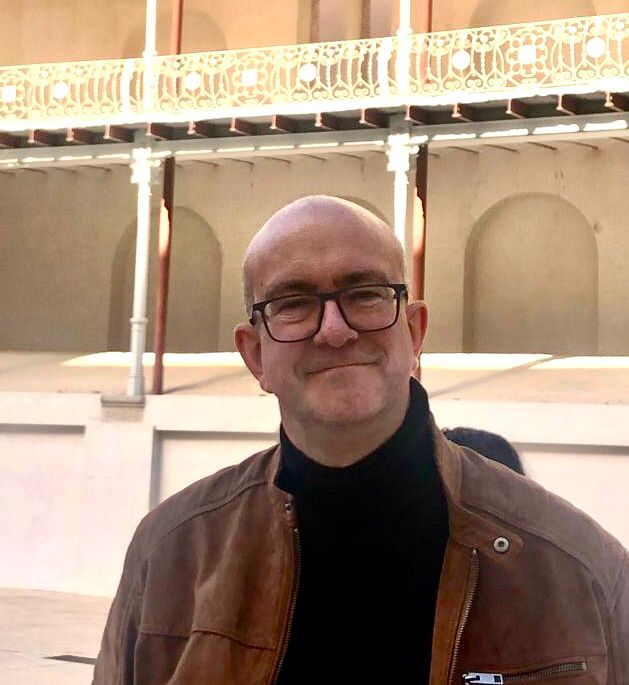
Fernando Blasco
In this webinar we present some problems and quizzes proposed by Martin Gardner. Problem solving is nor a subject by itself, but it is a soft skill that should be known by scientists and engineers. Martin Gardner wrote the column "Mathematical Games" in Scientific American for more than 25 years and the topics he wrote about covered cryptography, game theory, cellular automata, maths and art, ... They are a big source of examples for all STEM subjects and we can use some of them to illustrate a great variety of maths-related concepts, in a recreational and interesting way.
Bio:
Fernando Blasco holds a PhD in Mathematical Sciences and is an Associate Professor of Applied Mathematics at the Polytechnic University of Madrid. Interested in scientific outreach, the relationship between education and dissemination, and the integration of science as part of culture, he has promoted innovative educational initiatives through recreational mathematics and mathematical magic. Since 2020, he has been the president of the Dissemination Commission of the Spanish Mathematical Society and a member of the Outreach and Engagement Committee of the European Mathematical Society.
For over 20 years, he has been a frequent speaker in teacher training courses, training for scientific museum guides, and numerous educational events both within Spain and internationally, especially in recent years in collaboration with the Cervantes Institute. He has built bridges between secondary and high school education and the university, collaborating in the presentation of the Polytechnic University of Madrid in educational centers, conducting activities to promote STEM subjects, and participating in committees developing university entrance exams.
OCTOBER 08th 2025, 4:00PM (GMT+1)
Jaime Silva
Justin Reich, Director of the MIT Teaching Systems Lab writes in the report "A Guide to AI in Schools” that to determine how useful AI might become is just like preparing a guide for the development of Aviation in 1905, just two years after the Wright Brothers launched their first plane.
Short bio
SEPTEMBER 24th 2025, 4:00PM (GMT+1)
António Moreira
In an increasingly interconnected world, characterized by the ubiquity of digital technologies and the fluidity of learning spaces, new ways of conceptualizing the educational act are emerging. Contemporary learning ecosystems and ecologies are interactive, hybrid, liquid, and ubiquitous, shaping educational territories that transcend the physical boundaries of the classroom and expand into a global informational space where humans and non-humans coexist, interact, and learn. These environments are constituted by digital pedagogical architectures that integrate platforms, interfaces, algorithms, conversational agents, and social networks, forming complex and dynamic ecosystems that demand new ways of inhabiting, teaching, and learning. Accordingly, through the analysis of these learning ecologies, some of the challenges and possibilities of networked digital education will be examined, advancing an integrated, critical, and situated perspective on the competencies required for teaching and learning in the age of the infosphere.
Bio:
António Moreira is Full Professor in the Department of Education and Distance Learning at Universidade Aberta. He holds a PhD and a Master’s degree in Educational Sciences from the University of Coimbra, as well as a Bachelor’s degree in History, with a specialization in Art History, from the Faculty of Arts and Humanities of the same university. He completed a Postdoctoral Program in Educational Technologies at the University of Coimbra and a Postgraduate Diploma in Multimedia at the Faculty of Engineering, University of Porto. He also holds a Filmmaking Certificate from the Center for Cinematographic Studies in Coimbra.
He is an Integrated Researcher at the Centre for Interdisciplinary Studies of the University of Coimbra and both a Coordinator and Researcher at the Center for Global Studies of Universidade Aberta.
At present, he coordinates the Doctoral Program in Distance Education and eLearning, jointly developed by Universidade Aberta and the University of Minho, as well as the Postgraduate Program in Digital and Networked Education at Universidade Aberta. He collaborates with the Directorate-General for Education (DGE) as a specialist in the Action Plan for Digital Transition (Digital Competence of Teachers), and with the Portuguese Unit of the Eurydice Network at the Directorate-General for Education and Science Statistics (DGEEC), serving as an external national expert for the study Digital Education in Europe. He also serves as Coordinator of the ICT Competence Center in Porto (Ministry of Education, Universidade Aberta) and as a member of the Scientific-Pedagogical Council for Continuing Teacher Education in Portugal.
Internationally, he is a Visiting Professor in the Postgraduate Programs in Education and Contemporaneity, and in Management and Technologies Applied to Education at the State University of Bahia (UNEB), Brazil, as well as Guest Lecturer in the Specialization Course in Education and Technologies at the Federal University of São Carlos (UFSCar), Brazil.
He has published scientific articles in peer-reviewed journals and authored books in the fields of Teacher Education and Digital Technologies, and has participated as an invited speaker at academic events both in Portugal and abroad.
---------------------------------
........................................
2024/2025
JUNE 18th 2025, 4:00PM (GMT+1)

Maria de Fátima Lambert
Bio:
Maria de Fátima Lambert [Alexandrino Alves de Sá Monteiro] was born in Porto (Portugal), where she lives and works, after having lived in Barcelona, ??São Paulo and Lisbon. Bachelor's Degree in Philosophy (1982); Master's Degree in Philosophy/Aesthetics (1986) and Doctorate in Aesthetics/Philosophy - Faculty of Philosophy Braga / Portuguese Catholic University (1998); Post-Doc/FCT Scholarship "Writing and Seing" (2000-2004).
https://orcid.org/0000-0002-9959-2776
JUNE 11th 2025, 4:00PM (GMT+1)

Natalia Budinski
JUNE 04th 2025, 4:00PM (GMT+1)

Tommy Tanu Wijaya
AI Literacy and Trust Among Mathematics Teachers: Their Relationship with AI Dependency
Artificial Intelligence (AI), especially generative AI, has brought many benefits to education, like making math lessons more personalized and helping teachers analyze student data more effectively. However, not all math teachers have the same level of understanding or trust in AI, and some may become too dependent on it. This can affect how well they develop important skills like confidence, problem-solving, critical thinking, creativity, and teamwork.
We looked at 489 math teachers in China to see how their AI knowledge, trust in AI, and reliance on AI relate to these key skills. Using a method called latent profile analysis, the study identified five different groups of teachers based on their AI experience and attitudes. These ranged from basic users to experts who feel confident using AI.
The results showed that as teachers became more knowledgeable and trusting of AI, they also tended to rely on it more but this often came with a drop in their own confidence and other important skills. The study highlights that while AI can be a great tool, relying on it too much can be harmful. Schools and policymakers need to find a balance so AI supports teachers without taking away their ability to think critically and solve problems on their own.
Bio
Assist. Prof. Tommy Tanu Wijaya PhD is a dedicated mathematics educator and researcher from Indonesia, currently serving as a Junior Researcher at the National Research Institute for Mathematics Teaching Materials in Beijing, China. He is also the Head of Academic Affairs at the Mathematics Course Maker Space at Guangxi Normal University, China. Tommy holds a Postdoctoral Fellowship at Beijing Normal University. He earned his Ph.D. in Mathematics Education from Beijing Normal University, following a Master’s Degree from Guangxi Normal University and an undergraduate degree from IKIP Siliwangi. An accomplished scholar, Tommy has authored 89 Scopus-indexed documents with an H-index of 18. His skills include proficiency in a range of software tools such as fsQCA, MPLUS, AMOS, and Vosviewer, which complement his extensive experience in academic and educational settings.
May 28th 2025, 4:00PM (GMT+1)

Eva Schmidthaler
Ozobot Project in Steyr
In this talk, Eva Schmidthaler will present the ongoing Ozobot Regional project in Steyr and Steyr-Land, which aims to enhance digital education through the use of Ozobots in primary and secondary schools. Ozobots are small, programmable robots designed to introduce learners to coding through both screen-free color-coded commands and block-based programming. The project focuses on fostering programming skills, computational thinking, and inquiry-based learning while promoting equal opportunities in STEM education. Additionally, Eva will share first insights from her empirical research on Ozobot utilization in Upper Austrian schools, highlighting initial findings on its impact on student/teacher engagement and learning outcomes
Bio
Eva Schmidthaler is a researcher and lecturer specializing in STEM education, digital learning, and computational thinking. She is currently a Research Associate and Project Manager at the Johannes Kepler University Linz (JKU), leading national and international projects in technology-enhanced learning. As a Ph.D. candidate in STEM Didactics, her research focuses on integrating digital tools like augmented reality and robotics in education.
She lectures on digital education at the Universities of Education in Linz and Burgenland and has extensive teaching experience in secondary schools. A key aspect of her work is fostering computational thinking (CT) and digital literacy through robotics, particularly using Ozobots in classrooms. She develops workshops and educational materials that integrate robotics into interdisciplinary teaching concepts, supporting gender equality and inclusion in STEM.
In addition to her academic work, she actively leads local projects in her hometown, promoting the utilization of Ozobots in education to inspire young learners and create inclusive learning environments. Through these initiatives, she aims to reduce gender stereotypes and make STEM subjects more accessible and engaging for all students.
May 21st 2025, 4:00PM (GMT+1)

Nina Bohm
Educating uncertainty in times of sustainable transition
Transdisciplinary courses are increasingly prevalent in higher education curricula. These courses involve partnering with real-world actors to tackle real-world problems, perhaps most notably the contemporary sustainability challenge. How to balance environmental sustainability with social and economic goals is a contested issue, with varying perspectives on the problems and solutions, even among experts. Furthermore, sustainability education is shaped amidst an unpredictable political landscape and yet unknown technological advancements. This diversity of viewpoints, unpredictability, and a lack of knowledge makes uncertainty an inescapable part of the future of engineering education.
In this webinar, we will explore uncertainty on a conceptual level and reflect on your personal experiences with uncertainty. Then, we will collaboratively develop scaffolding strategies to support students in learning to deal with uncertainty. The workshop is based on Nina Bohm’s PhD thesis and she will translate her work to some concrete questions for engineering educators.
This webinar is for you if:
- You want ideas on how to scaffold uncertainty in a (transdisciplinary) learning environment.
- You want to understand uncertainty both on a personal and a conceptual level.
- You want to connect with other researchers and teachers interested in supporting engineering students to constructively engage with uncertainty.
Bio
dr.ir. Nina Bohm, Copernicus Institute, Utrecht University, the Netherlands
Nina is a reflective and engaging educational researcher and designer with a passion for exploring the open questions in sustainability education. She obtained her PhD degree from the TU Delft in 2024 with a thesis titled ‘Educating Uncertainty.’ In this work, she investigated how students and teachers deal with uncertainty in transdisciplinary courses on urban sustainability. Previously, she has been involved in the design of such education at AMS Institute and contributed to the development of MSc MADE. Now, Nina works a postdoctoral researcher at the Copernicus Institute, where she researches climate anxiety amongst students and explores the potential of design to teach hope and agency in times of sustainable transitions
May 14TH 2025, 4:00PM (GMT+1)

Tobias Buchner
Making making inclusive? Towards a maker education for all
My presentation begins with a critical examination of the inclusive claims associated with maker education. In doing so, I analyze the ability expectations embedded within the conceptualizations of "maker" and "making," and the implicit forms of exclusion they may produce (Buchner & Ojo, 2022). Drawing upon a broader understanding of inclusion, I further interrogate the limitations of the maker movement, highlighting how certain narratives portray makers as white, middle-class, able-bodied males, thereby marginalizing other identities and experiences.
In the second part, I shift focus to maker education itself, which is often associated with considerable pedagogical promise. It is frequently framed as an educational strategy designed to foster key abilities for participation in 21st-century societies. Moreover, several scholars have emphasized its potential to facilitate truly interdisciplinary STEAM education. These accounts often align with reform pedagogical traditions and advocate for an inclusive vision of “maker education for all.”
The third section addresses potential pitfalls and barriers that some practices of maker education may present for diverse learner groups. Here, I present findings from a empirical case study conducted in a public library in Austria, focusing on a maker education initiative. The results indicate that group work—commonly employed as a central didactical method in maker education—entails specific challenges and requires careful pedagogical adaptation to ensure inclusive participation.
In the final part of my presentation, I outline the initial stages of a participatory project on maker education in primary schools. In this initiative, teachers and students collaboratively design and implement maker education practices, with the aim of enabling broad and meaningful participation in learning processes.
Bio
Buchner is Chair of the Austrian Monitoring Committee on the Implementation of the UN Convention on the Rights of Persons with Disabilities and Chair of the Inclusive Education Special Interest Research Group of the International Association of the Scientific Study of Intellectual and Developmental Disabilities (IASSIDD).
Next to these positions, Tobias Buchner serves on the board of directors of the competence network of communication technology to support the inclusion of persons with disabilities (KI-I): https://www.ki-i.at/en/home
Following positions at Trinity College Dublin/Ireland, University of Vienna/Austria and University of Halle/Germany, Prof. Dr. Tobias Buchner currently serves as Head of the Department of Inclusive Education at the University of Education Upper Austria. His main research interests are inclusive education, digitalization and space, ableism and education, learning biographies and inclusive research. Buchner won several research awards, such as the ‘Science Award of the German Society of Educational Research’ in 2018. He conducted various national and international projects on inclusive and special education – both as principal investigator and cooperation partner. Furthermore, he has published in the most important peer-reviewed international journals of his field - and is editor of the German Handbook of Inclusive Research as well as the Routledge Handbook on Space, Education and Inclusion.
Next to this, Tobias Buchner is engaging in third mission and capacity building between research, businesses and civil society. As an example for this area of work, Buchner serves on the board of directors of the competence network of communication technology to support the inclusion of persons with disabilities (KI-I): https://www.ki-i.at/en/home.
April 16TH 2025, 4:00PM (GMT+1)

Janka Medova
Enhancing Combinatorial Thinking through Programming: Automation and Algorithmization in Mathematics Education
Problem-solving is central to mathematical education, fostering essential skills for success. Combinatorics provides unique problem-solving experiences, encouraging students to explore multiple solution paths, justify reasoning, and compare strategies, fostering metacognitive growth.
Combinatorial thinking combines logical reasoning with systematic planning, helping students analyze all possible configurations of elements. It supports transitions from intuitive listing to abstract reasoning using sum and product rules, permutations, arrangements, and combinations. As a gateway topic, combinatorics boosts struggling students' confidence in mathematics.
Integrating programming enhances combinatorial and computational thinking. Programming automates processes, algorithmizes problem-solving, and visualizes complex structures. It enables students to explore broader problem spaces by analyzing, modifying, or creating algorithms, deepening their understanding of systematic listing and combinatorial logic.
This workshop explores how programming enriches combinatorics education through combinatorial and computational thinking frameworks, focusing on automation and algorithmization. Practical examples will illustrate how programming verifies systematic listings, models structures, and solves problems algorithmically. Engaging with code—whether analyzing, modifying, or creating—enhances mathematical learning and fosters computational literacy.
Bio
Janka Medová is an associate professor at the Department of Mathematics, Faculty of Natural Sciences and Informatics, Constantine the Philosopher University in Nitra, Slovakia. Her scholarly work focuses on constructivist pedagogies in mathematics education, particularly in discrete and computational mathematics and on teacher development in collaborative groups.
April 9TH 2025, 4:00PM (GMT+1)

Eli Bagno
DigitalChatGPT in Teaching Linear Algebra: strides forward, steps to go
As soon as a new technology emerges, the education community explores its affordances and the possibilities to apply it in education. In this article, we analyze sessions with ChatGPT around topics in basic linear algebra. We reflect on the affordances and changes between two versions of ChatGPT since its worldwide publication in our area of interest, namely, linear algebra. In particular, the question of whether this software can be a teaching assistant or even somehow replace the human teacher is addressed. As of the time this article is written, the answer is generally negative. For the small part where the answer can be positive, some reflections about an original instrumental genesis are given.
Bio
Professor Eli Gagno lives in Jerusalem, Israel, has 5 children and one grandson. Studied at Bar Ilan University. He teaches inter alia Linear Algebra for more than 30 years. Department of Mathematics, Jerusalem College of Technology, Jerusalem, Israel; Department of Mathematics, Jerusalem Michlala College, Jerusalem, Israel
More information here: https://elibagno.com/about-me/
April 3rd 2025, 4:00PM (GMT+1)

Yuliana Lavrysh
Navigating Challenges in Education: Designing Resilient Learning Environments for a Sustainable and Inclusive Tomorrow
The workshop explores the transformative potential of resilient pedagogy in addressing the challenges of modern education. Participants will delve into the core principles of resilient pedagogy, uncover the characteristics of resilient educators, and learn how to design learning environments that are adaptable, inclusive, and sustainable. Incorporating Universal Design for Learning (UDL), the workshop will provide practical strategies and tips for fostering flexibility and accessibility in university settings. Additionally, it will examine the shift from "fail-safe" approaches to "safe-to-fail" strategies in education, exploring how environments designed with built-in flexibility for trial, error, and adaptation support resilience while fostering creativity and innovation. The discussion will highlight real-world examples, such as adaptive assessments, dynamic curricula, and the use of AI-driven tools to personalize and adjust learning pathways in real time. Attendees will discover how educational technologies can empower both educators and learners to thrive amidst disruptions and dynamic learning contexts.
Bio
Yuliana Lavrysh is a Doctor of Pedagogical Sciences and a Full Professor at the Faculty of Linguistics, where she serves as the Head of the Department of English Language for Engineering at Igor Sikorsky Kyiv Polytechnic Institute, Ukraine. She has been teaching English as a foreign language and English for Specific Purposes (ESP) for about 25 years across BA, MA, and PhD levels. During her career, she has delivered lectures and workshops at universities in Germany, Lithuania, Greece and Israel. Her scientific research focuses on resilient and trauma-informative pedagogy, virtual exchange, comparative education, teaching English for Specific Purposes, and the integration of educational technologies in language learning. She is the author and co-author of more than 110 scientific publications in these areas.
Yuliana Lavrysh is a member of the editorial boards of several scientific journals. She actively participates in national and international conferences, forums, workshops, seminars, and webinars, contributing to the ongoing discourse in her fields of expertise.
MARCH 26TH 2025, 4:00PM (GMT)

Filiz Mumcu
Digital Competencies for teachers in the era of AI for STEM teaching and learning
This talk comprehensively addresses how artificial intelligence (AI) can be integrated into STEM (Science, Technology, Engineering, and Mathematics) education and the innovations this integration brings to educational processes. AI technologies offer significant opportunities to both teachers and students in STEM education. AI-powered tools and applications enable teachers to enhance their technological, pedagogical, and content knowledge, allowing them to implement more effective teaching strategies. The integration of AI into STEM education will be discussed through three main components within the framework of the TPACK (Technological Pedagogical Content Knowledge) model: technological knowledge, pedagogical knowledge, and content knowledge. The effectiveness of AI-supported STEM education in developing students' problem-solving, critical thinking, and creativity skills, as well as the professional development opportunities it offers to teachers, will be emphasized.
Bio
Dr. Filiz Mumcu holds dual bachelor’s degrees in Computer Science Education and Computer Engineering from Gazi University, and she earned her master’s and doctoral degrees in Computer Education and Instructional Technology (CEIT) from Hacettepe University. From 1998 to 2017, she served at the Administrative Organization of the Presidency of the Grand National Assembly of Türkiye (TBMM), where she gained extensive experience in administration and organizational dynamics. Since 2017, she has been a faculty member in the Department of CEIT at the Faculty of Education, Manisa Celal Bayar University in Türkiye. Currently, she is a post-doctoral researcher at Johannes Kepler University (JKU) in Austria, a position she has held since 2022. Her research interests revolve around the integration of technology into learning and teaching processes, computer science education, interdisciplinary education (STEM), online learning, and teacher education and professional development. As one of the co-founders of the Interdisciplinary Teacher Academy research group, she collaborates with esteemed colleagues at Hacettepe University ONTOLAB and the JKU Linz STEAM Education research groups. She is the author and co-author of a large number of papers in international journals. According to Google Scholar, her h-index is 16 and she has more than 1700 citations (https://scholar.google.com/citations?user=izupGNoAAAAJ&hl=tr). She has been working on national and international projects.
MARCH 19TH 2025, 4:00PM (GMT)



Fuad Budagov Janika Leoste Tiina Kasuk
The State of the Art of Telepresence Robots and Robot Assistants in Education
Recent Education is wildly influenced by modern digital technologies. A plethora of novel possibilities is open for learning and teaching. We focus on the potential that telepresence robots and robot assistants offer in education, especially in the context of modern learning environments, including remote and hybrid learning. Telepresence robots can be used for providing students or teachers with limited real-time physical and social presence in a physical classroom, supporting student engagement and participation. Robot assistants can be helpful in supporting teachers and aiding learners.
During the presentation, we will bring several practical examples and discuss studies that have demonstrated how these technologies can help overcome the limitations of the old-school educational approaches. We focus on the practical implementation challenges, review the social and ethical aspects, and examine the opportunities for providing equally high-quality education for everyone. We also discuss how telepresence robots and robot assistants can have a positive influence on innovation and promote an inclusive learning environment, supporting the sustainable development goals. Finally, we will have a broader dialogue and collaboration to identify the best strategies for integrating these technologies into classroom practices.
Bios
Dr. Janika Leoste holds a PhD in Educational Sciences and an MSc in Economics and Finance. She is an Associate Professor of Educational Robotics at Tallinn University and an Assistant Professor at Tallinn University of Technology. Her research focuses on educational robotics, STEAM education, educational innovation, and hybrid learning methods. Since 2019, she has been teaching at the university level, incorporating educational robots and project-based learning into her courses. Dr. Leoste has published a volume of high-level scholarly articles in journals such as Frontiers and Taylor & Francis. She has supervised 12 master's theses and is currently mentoring six doctoral students. Her previous experience includes developing accounting software, creating web-based games, producing animated films, and teaching robotics. Dr. Leoste has successfully secured research funding from various national and international sources, including the EU's Horizon Europe and Erasmus+ programs. Notably, she leads the ERA Talents project "EdTech Talents" with a budget of €3 million.
Fuad Budagov is a researcher and PhD student at the School of Information Technologies, Tallinn University of Technology. His research focuses on the applicability of robot assistants in higher education within the field of educational technology. Additionally, he serves as a lecturer at IT College, Tallinn University of Technology where he has been teaching cybersecurity courses for bachelor's students since 2020. Education: BSc in Cyber Security Engineering, MBA.
Tiina Kasuk is an Early State Researcher and PhD student at Tallinn University of Technology, specializing in educational technology, hybrid learning, and telepresence robotics. She has a background in computer science, multimedia, and pedagogy; she has over 20 years of experience in digital learning and instructional design. Her research focuses on integrating telepresence robots into teaching and learning education and supporting learning with technology and digital tools. Previously, she managed the Tallinn University of Technology’s Educational Technology Center and contributed to EU-funded projects. She is also an active member of the Estonian Educational Technologists’ Association.
MARCH 12TH 2025, 4:00PM (GMT)
.jpg)
Arlindo Oliveira
Artificial Intelligence: Applications, Implications and Speculations
Recent advances in the fields of artificial intelligence (AI) and machine learning are revolutionizing our economy and our society. AI-based systems are finding numerous applications in marketing, sales, healthcare, finances, education, transportation, logistics, design, and even in scientific research. In the near future, AI-based systems may replace a significant fraction of human workers in many jobs and functions. Machine learning, a technology that is at the core of recent AI developments, enables computers to learn from experience and opens the way to even more radical changes in the way we interact with machines. Deep learning, in particular, is enabling us to address new problems in computer vision and human interaction, with many applications in analytics and automation. Recent results obtained with transformer-based vision-language models, convolutional neural networks, deep reinforcement learning, and reverse diffusion have brought this topic to the center of public attention and will have, no doubt, many practical, social, and philosophical impacts in the near future. Next generation AI systems will combine state-of-the-art models with reasoning abilities, achieving, or exceeding human-level performance in many tasks. Many AI companies are now explicitly aiming at developing artificial general intelligence (AGI), creating the prospect of systems as intelligent, powerful, and possibly even as conscious as humans. If they come into existence, what will be the social, legal, and ethical implications?
Bio
Distinguished professor of Instituto Superior Técnico (IST), with the CSE Dept. President of INESC. Distinguished guest professor at Macau University of Science and Technology. Researcher of INESC-ID. Member of the board of CGD. Member of the Portuguese Academy of Engineering, of the Lisbon Academy of Sciences, and of ACM. Senior member of IEEE and fellow of ELLIS.
Education: PhD in EECS from UC Berkeley and MSc and BSc in EECS from IST. Post-graduation on risk management from INSEAD.
Areas of interest: algorithms, machine learning, artificial intelligence, bioinformatics, and CAD.
FEBRUARY 17TH 2025, 2:00PM (GMT)

Iryna Simkova
Inclusive Communicative Strategies in Education
This talk explores the key concepts of social inclusion in education and examines the challenges associated with implementing inclusive strategies. Focusing on the case of a Ukrainian university, we analyze the benefits and potential drawbacks of adopting inclusive communication strategies in educational settings. The presentation highlights findings from interviews conducted with students and English for Specific Purposes (ESP) teachers at Igor Sikorsky Kyiv Polytechnic Institute. A comparative analysis reveals positive developments in the well-being of internally displaced students following the introduction of inclusive communication strategies. The results underscore the importance of integrating individualization, diversification, and differentiation into classroom practices to enhance the well-being and academic success of internally displaced students. These findings offer valuable insights into fostering resilience and inclusivity in higher education.
Short bio
Iryna Simkova is a Doctor of Science (Education), Professor, and currently serving as the HoD of English Language for Humanities at Igor Sikorsky Kyiv Polytechnic Institute. Her research and publications are closely connected with the integration of digital technologies, virtual exchange methodology, resilience, diversity, and inclusion in the learning environment. As an expert, she has good experience in organizing and coordinating virtual exchange projects in cooperation with colleagues from the USA Japan, Spain, Denmark, Germany, etc. As an active member of the Professional Learning Network Organization and the UERA, she has engaged in dissemination events among researchers. As an active participant of the team, working on the development and implementation of the Policy on English in Higher Education in Ukraine in collaboration with MoES and British Council Ukraine.
FEBRUARY 5TH 2025, 4:00PM (GMT)

Jozef Hvorecký
Humour in Education
By common people, Mathematics is often considered being a dry and tedious discipline. This prejudice repels many of them from attempts to learn and understand it. To demonstrate the opposite, mathematicians usually propose examples of its real-life applications in science and technology. In author’s opinion, such approach may have a contradictory effect: People not comprehending the complex problem can hardly value the role of mathematics in its resolution and become even more confused.
In the seminar, an inverse approach is recommended. We exploit simple tasks in which the role of elementary mathematics becomes evident. Solutions of some of them look easy but are counterintuitive. Others carry elements of humour and demonstrate that there can be fun during mathematical lessons. Some demonstrate “limits” of Maths including the fact that not everything can be calculated.
The seminar content primarily consists of series of tasks having the above features. I hope you enjoy them
Short bio
Jozef Hvorecký was born in 1946 in Slovakia. He graduated Numerical Mathematics at the Comenius University in Bratislava (1969) and Computer Programming at the Academy of Sciences of the U.S.S.R. in Moscow (1976). During his career, he taught on-site and/or on-line at 19 universities in 12 countries. Some of them at rather exotic places like Papua New Guinea, United Arab Emirates, Macao, and Mexico. He initially taught Programming, then moved to Databases, Database Management, Knowledge Management and related topics. His research interests address innovative ways of teaching his subjects.
His diverse international experiences showed to him that evoking student’s motivation is a worldwide key factor of educator’s success. He started designing problems promoting learner’s interest and engagement. He applies them in his daily practice. One of the most promising ways leads via humour. It appears not only in his lectures; he also authored several children books in order to present Maths and Science in this way.
JANUARY 29TH 2025, 4:00PM (GMT)

Carla Finesilver
Representations, inclusions, and mathematics education
The two domains of mathematics education and inclusive education are each well-established in their own right, yet often not very integrated. This is the case within both educational research and in professional training and development: while some mathematics-based literature considers issues of inclusion, and some inclusion-based literature includes issues of mathematics (or, more likely, numeracy), there is little that marries the two as equal theoretical and practical partners. An even smaller proportion of this takes a social or interactional stance on Disability and other forms of bodymind diversity.
Short bio
Dr Carla Finesilver is Senior Lecturer in Mathematics Education and Inclusion at King’s College London, teaching on multiple undergraduate, postgraduate, doctoral and professional programmes. She has published on various aspects of mathematics education and disability inclusion, consulted at national level on dyscalculia, and previously lead the CERME thematic working group on representations in mathematics. Prior to entering academia she taught for 10 years in London schools. Through research, teaching and writing, she works to develop more inclusive educational policies, practices and communities.
JANUARY 15TH 2025, 4:00PM (GMT)

Yossi Elran
Pioneering the MOOC frontier
This lecture offers a comprehensive exploration of Massive Open Online Courses (MOOCs). Drawing from my extensive experience in science and math education with platforms like Moodle and FutureLearn, the lecture navigates through the evolution, design, and technological advancements in MOOCs. Participants will gain insights into effective MOOC structures, pedagogical strategies, and emerging trends in online learning.
The session emphasizes practical applications in science and math education, showcasing successful case studies and discussing the challenges and future prospects of MOOCs.
This lecture and activity promise to be an enlightening experience, providing valuable insights and actionable strategies for those involved in shaping the future of online education.
Short bio
Head of Innovation at the Davidson Institute of Science Education, the educational arm of the Weizmann Institute of Science, Recreational Mathematician, Author and Lecturer. More info here.
DECEMBER 4TH 2024, 4:00PM (GMT)

Nuno Moniz
The good, the bad and the ugly of AI in Education
Education's challenges pre-date this new wave of Artificial Intelligence applications, such as ChatGPT. Declining creativity and underperformance in mathematics and reading, combined with a growing question of the value of higher education as it becomes more massified. At this particular juncture, AI is not necessarily bad or good: as with most technologies, it has the power to work towards both. In this talk, we'll discuss the good, the bad, and the particularly bad (or ugly) dimensions of recent AI applications in Education.
Short bio
Nuno Moniz is the managing director of the Notre Dame-IBM Technology Ethics Lab, an Associate Research Professor at the Lucy Family Institute for Data & Society, and the Associate Director for the Data, Inference, Analytics, and Learning (DIAL) Lab.
Moniz’s research is primarily focused on machine learning, looking into problems such as rare event detection, data privacy and model interpretability. He is particularly interested in interdisciplinary efforts to understand the real-world impact of intelligent systems.
Before joining Notre Dame, Nuno was a Senior Researcher in INESC TEC (Portugal). He holds a PhD in Computer Science from the University of Porto.
NOVEMBER 20TH 2024, 4:00PM (GMT)


Carlos Libisch Claudia Brovetto
League of Challenges: A Hybrid Tool for Prioritizing Skills from Students' Perspectives
Short bio
Carlos Libisch has the position of Head of New Measurements since 2018. He has a PhD in Neuroscience and Clinical Psychology from the University of Santiago de Compostela, Spain, where he also completed his Master's studies. He did his Bachelor's degree in Psychology from the University of the Republic Uruguay.
He has extensive experience in both public and private educational institutions and is a researcher at the Clinical Research Center in Psychology at the Faculty of Psychology, University of the Republic. Additionally, he has worked as a consultant for the IDB in the development of assessment tools for the Institute of Educational Evaluation, as well as for the Pan American Health Organization on drug prevention programs. He has published several international articles on topics related to education and health.
NOVEMBER 06TH 2024, 4:00PM (GMT)
David Reid Anderson
Fusion - learning, teaching and storytelling
Storytelling is inherent in every culture, and has long been a source for learning and teaching. How can Aristotle’s story arc and architypes add to learning, and who should tell the story.
Short bio
Following a successful career in advertising as a creative director, David joined academia in 1994 and spent 25yrs, for the most part, as a course leader. He, staffed and delivered award winning BA (Hons) courses in both Leeds Arts University and the University for the Creative Arts in England. His research has focussed on learning and teaching. He attended a high number of validation and revalidation events across England and Wales and was also an external examiner for a number of BA and MA courses. He joined Vilnius Tec University at their request, to work with international students. He is a published playwright and author of short stories. He has been a guest speaker at industry events and delivered ‘creative bootcamps’ for industry.
NOVEMBER 04TH 2024, 3:00PM (GMT)

Yossi Elran
Math as play – how, what and why to use recreational math in education
Over the last few decades, there has been a surge of interest in recreational math, inspired mainly by the work of the late Martin Gardner. It is challenging to define recreational math precisely; however, it is generally taken to mean the interconnection of math with the Arts and other creative areas, such as games, puzzles, and magic. Recreational math combats standard views that math is ‘just for nerds’, ‘boring’, ‘difficult’, and ‘useless’ by showing that contrary to common belief, math can be ‘popular’, ‘exciting’, ‘challenging’ and ‘useful in day-to-day life’. Moreover, teachers and students who engage in recreational math activities develop valuable 21-century skills blending creative thinking, deep, interdisciplinary knowledge, and stamina. In this talk, we will give an overview of recreational math and discuss how it is - and can be used much more - in formal and informal education. We will also present some surprising insights from case studies that we have explored.
Short bio
Head of Innovation at the Davidson Institute of Science Education, the educational arm of the Weizmann Institute of Science, Recreational Mathematician, Author and Lecturer. More info here.
OCTOBER 28TH 2024, 3:00PM (GMT)

Olga Timcenko
Thematic workshops as essential part of mathenatics course for non-mathematic majors
In this talk, we explore the integration of thematic workshops as a crucial component of a mathematics course designed for non-mathematics majors, specifically targeting students in Media Technology programs. Many of these students arrive with weak mathematical backgrounds and lack enthusiasm for the subject. Despite their disinterest, a mandatory mathematics course taught by a faculty member from the Mathematics Department is a legal requirement. Unfortunately, this often results in poor exam performance and widespread student disengagement. Our approach aims to bridge the gap between the abstract nature of mathematics and its practical applications in media-related professions. While modern software tools, such as game engines and image or film editing software, intentionally and increasingly obscure the mathematical concepts underlying their functionality, it is essential to demonstrate to students that mathematics plays a vital role in their future careers. To achieve this, we have structured the course around 12 lectures and 4 full-day workshops. Each workshop is closely tied to exam topics and is preceded by three corresponding lessons, enabling students to apply theoretical knowledge in hands-on settings.
The course is a collaborative effort between mathematics and media technology instructors, ensuring that the workshop topics are relevant and tailored to the students' fields of study. However, despite these efforts, students frequently express concerns that the mathematical content remains overly abstract and difficult to grasp. This highlights the need for further refinement in both the course content and its delivery methods, with a focus on making mathematics more accessible and engaging for non-mathematics majors.
Short bio
Associate Professor at Aalborg University
2022/2023
FEBRUARY 15TH 2023, 2:30PM (GMT)
.jpg)
Noah Dana-Picard
Using news items to explore plane curves: a STEAM approach with planets’ orbits
From time to time, satellites, comets, probes and robots provide the main titles in newspapers and other media. For example, The triple launch of spacecrafts towards Mars which occurred in August 2020 drew a large attention. We used this to attract the students to develop very simple models of trajectories in space, using mathematical software. This provided an incitement to study parametric curves, and to broaden their scope with examples providing aesthetic creations, without a compulsory physical meaning. Among the items which can be shown and introduced to the technology-based activities are the hand-made drawings by Kepler of planetary motions viewed from the Earth.
A byproduct of the study is enhancing the importance of mastering the precision of approximations. This is also illustrates why engineers have to recompute all the time the trajectories of their spacecrafts.
The combination of all these elements in the study is a characteristic of a STEAM approach to Education. Such activities with students enhance the 4 C’s of 21st Century Education: Collaboration, Communication, Critical Thinking and Creativity. A 5th C may be also involved: Curiosity. And not only the eponym Mars robot.
Short bio
Thierry (Noah) Dana-Picard is a Professor in Mathematics, a lecturer and researcher at Jerusalem College of Technology (JCT, Israel), an academic institution mostly devoted to High-Tech Engineering. Over the years, he chaired the Mathematics Department, and afterwards served as President of JCT. Now he is the director of a research chair at JCT. He is interested in algebraic curves and surfaces (isoptics, envelopes, offsets, etc.). He is also strongly involved in Teacher Training, and an important part of his research is devoted to Mathematics Education in a technology-rich environment. He is also involved in graduate courses on mathematics related to space technologies, and acts as advisor for Ph.D.s related to STEAM Education.
------------------------------------------------------------------------------------------------------------------------------------------------
JANUARY 18TH 2023, 2:30PM (GMT)
.jpg)
Christopher Sá
Building Engineering Prototypes
The current Engineer has little initiative in the creation of prototypes that can later originate new products. The sooner engineers start their prototyping process, the faster they can be useful to industry or be compensated economically. The academy has, therefore, the duty to take the first step as an educational agent.
Short bio
Dr Sá owns:
- PhD Degree in Chemical Engineering (FEUP), MSc in Environmental Technology (UM), Degree in Chemical Engineering (ISEP).
- Environmental Technology Engineer in EFACEC, SA - Energy (1995-96) and EFACEC, SA – Environment (1996-97).
- Professor in IPB (1998-99), UM (2000-01) and ISEP (since 1999).
- Current interests: Education; Water and Air Quality; Energy Efficiency; Process Modelling and Optimization.
------------------------------------------------------------------------------------------------------------------------------------------------
DECEMBER 7TH 2022, 2:30PM (GMT)
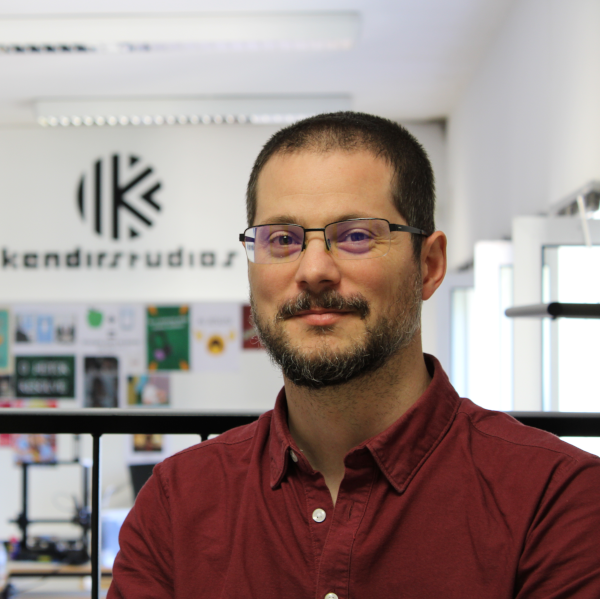
Eduardo Nunes
Design and implementation of game based learning and teaching solutions
Gamification is one of the most promising areas in education, in particular pre-university students, with the potential to bring fun and motivation to students, which, in turn, result in better learning outcomes and retention. Among gamification solutions, game-based learning/teaching is among the solutions that present the highest levels of immersion, interactivity and dynamics. However, it also presents the most confusing set of potential solutions and some of which implies a set of skills or previous experience teachers do not always have. This Seminar aims at bringing some clarity into the field and give practical, clear possible solutions for implementation and/or testing in classrooms.
Short bio
«Eduardo Nunes is co-founder of Kendir Studios, a research and development company in Vila Nova de Gaia that focuses on the development and commercial implementation of game-based learning and teaching digital solutions and immersive learning 3D environments. Additionally to taking on the main function of game design and team management, he is also a researcher at the Center of Research for Innovation in Education of the Polytechnic Institute of Oporto (inED - ESE - IPP), where he helps coordinate the "Schoolers & Scholars (SNS): Role-Playing Games (RPG) no Processo de Ensino e Aprendizagem dos 1º CEB e 2º CEB" research project. He has published several papers and taught seminars and workshops on game subjects such as based learning, gamification, storytelling in education and digital learning environments.
------------------------------------------------------------------------------------------------------------------------------------------------
NOVEMBER 23Rd 2022, 2:30PM (GMT)

Mário Cruz
Escaping from the Traditional Classroom - The Octalysis Framework applied to Higher Education Teaching
In this seminar we will focus on gamified practices and its resources which cater for the development of the so-called soft skills, including the escape room approach (either physical or digital). Therefore, the aim of this seminar is to reflect upon Chou’s (2016) Octalysis framework and how it can effectively be applied to Higher Education Teaching contexts. The implementation of gamification designs and practices within this type of framework allow us to understand how we can implement effective approaches towards a transformative classroom.
Short bio
Dr. Mário Cruz is Associate Professor at the School of Education of the Polytechnic of Porto, where he teaches Spanish as a Foreign Language, Hispano-American Literature and Culture, Didactics of Languages, Intercultural Education and Educational Technology. He holds a Graduate Degree in Teaching of English and German (University of Aveiro), a Postgraduation Course on Special Education (Polytechnic of Porto), a M.A. in Didactics of Languages (University of Aveiro), a M.A. in Teaching of English and Spanish at Basic Education (Polytechnic of Porto), a M.A. in Teaching of English and Spanish at 3rd Cycle of Basic Education and Secondary School (University of Aveiro), a PhD in Didactics and Professional Development (University of Aveiro) and another PhD in Linguistic Studies (University of Vigo, Spain). Since the present academic year, he has been serving in the Services of the Presidency of the Polytechnic of Porto, as Director of the Center for Pedagogical Innovation of the Polytechnic of Porto.
His doctoral theses and Master's dissertations have as main focuses: critical hyperpedagogy, the intercultural and plurilingual approach, the use of technologies in the teaching-learning process, gamification, distance learning and linguistic and cultural varieties.
He is currently an integrated researcher and the coordinator of the thematic line "Teacher Training" at inED – Research Center for Innovation in Education (Research Center regulated by the Foundation for Science and Technology, Portugal), where he directs the following research projects: "CLIL 4 U - implementation, monitoring and evaluation of bilingual education projects", "PEPPA 6/7 - Primary English Practice Program for Ages 6/7”, “Schoolers & Scholars (SnS): Role-Playing Games (RPG) in the teaching and learning process of the 1st CEB and 2nd CEB” and "VarLang - Linguistic and cultural varieties in the teaching of foreign languages".
He is the author of numerous national and international scientific publications, namely books, book chapters and scientific articles indexed in Web of Science, Scopus and Qualis, as well as Editor/Associate Editor of several scientific journals and reviewer of articles in his areas of expertise.
Recently, he has taken on the role of Expert at the Higher Education Assessment and Accreditation Agency (A3ES), within the scope of various processes of evaluation/accreditation of study cycles, in the field of ??educational sciences.
-----------------------------------------------------------------------------------------------------------------------------------------------
2021/2022
JUNE 2nd 2022, 2:30PM (GMT+1)

Chantal Buteau
An inquiry-based approach to teaching computational thinking in university mathematics
There are different approaches to integrating computational thinking (CT) in university mathematics: e.g., through a compulsory computer science course requirement, as part of a modeling or numerical methods course, or throughout an entire mathematics program (such as the integration at the University of Oslo in Norway, where computer programming is used as a transversal problem-solving tool). In this seminar, I will present and reflect on an inquiry-based CT-integrated implementation, for over 20 years, in the mathematics program at Brock University (Canada). First, using the Instrumental Approach as a theoretical lens, I will discuss selected results from a 5-year research project, based on qualitative and quantitative analyses and addressing the following questions:
- How do instructors support math majors and future math teachers’ appropriation of programming as a meaningful instrument for pure or applied mathematical inquiry?
- Which aspects of their use of programming for mathematical inquiry do these students find the most challenging?
- What teaching aspects do students find the most effective to support their learning through inquiry?
Second, by reflecting on my own experience, I will share further views on challenges and opportunities encountered as an instructor.
Short bio
Dr. Chantal Buteau is Full Professor in the Department of Mathematics and Statistics at Brock University (Canada). Since she joined Brock in 2004, Chantal has been involved in the teaching of the programming-based mathematics courses discussed in this seminar. In 2018, she also introduced a 3rd course version specifically designed for future teachers. Chantal has a PhD in mathematics (from the University of Zurich); but over the years, she has progressively been involved in education research with a main focus on the integration of digital technology for (university) mathematics learning, including programming, CAS, and epistemic mathematics (computer) games. She has taken part in various collaborative research projects funded by the Canadian Social Sciences and Humanities Research Council (SSHRC), such as “Computer Algebra Systems (CAS) in University Instruction: An International Research Study on CAS Usage and Sustainability.” She currently leads a SSHRC-funded project entitled “Educating for the 21st Century: Post-secondary students learning ‘progmatics’ (computer programming for mathematical investigation, simulation, and real-world modeling).” Chantal recently conducted research work for the Ontario Ministry of Education (Canada) about the teaching and learning of elementary coding and secondary school computer science. She is currently the co-director of the Mathematics Knowledge Network (http://mkn-rcm.ca), which brings together diverse mathematics education stakeholders from across Ontario (Canada), and she serves as the leader of its Computational Modelling community of practice
---------------------------------------------------------------------------------------------------------------------------------------
May 26th 2022, 2:30PM (GMT+1)
.png)
Paula Peres
Challenges of e/b-Learning Systems
This session will address the different models for learning and how there’s an overall shift from single-event training to cultures of continuous learning.
Short bio
Dr. Paula Peres has an aggregation in the doctoral area of e-Learning, a post-PhD in Education technologies and a PhD in area Information Systems. Master in computer science and graduate in Math Computer. She has a Post-graduation in adult education. She is currently teaching on the Information System scientific area in the School of Accounting and Administration of Porto / Polytechnic of Porto (iscap/p.porto). She was the pro-president for e-Learning of Polytechnic of Porto. She was responsible for the Training Center and Services of ISCAP/ Polytechnic of Porto. She is the coordinator of the Unit of eLearning and Pedagogical Innovation of P.PORTO (EIPP/P.PORTO). She is a director of the Master in Assistance in Digital Communication. He is a member of the commission for distance learning at A3ES (Higher Education Assessment and Accreditation Agency). President and Member of different external evaluation commissions for the accreditation of study cycles taught at a distance
----------------------------------------------------------------------------------------------------------------------------------------
May 12th 2022, 2:30PM (GMT+1)

Houssam El-Kasti
Teaching mathematics at the foundation level. How to make the best of it?
Teaching mathematics at the foundation level, (a semester or one year that prepares students to enter university filing the gap between school and college mathematics) is a challenging mission. Students come from different backgrounds with low level of mathematics paired with low like for the subject.
Our job as instructors for such group necessitate the use of multiple teaching models, strategies, and tools.
In this lecture, I will share my experience teaching this kind of courses at three universities for more than 15 years. What worked and what did not work with me. Also, one of my best lessons and technological tools.
Short bio
Dr. Houssam El-Kasti from Beirut, Lebanon.
Currently teaching mathematics at the foundation program as a lecturer at Qatar University, Doha, Qatar. Professional in mathematics education with specialty of preparing teachers to teach conceptual mathematics with technology. Has a vast experience in teaching mathematics in schools and universities such as the American University of Beirut (aub) and the Lebanese University. Also experienced in teaching undergraduate and graduate mathematics education courses (in Lebanon). In the past 10 years, has attended more than 10 international conferences about mathematics education and teaching mathematics with technology where he presented his work and ideas. His greatest achievement was getting an invitation to present in the 14th International Congress on Mathematics Education (ICME 14) in Shanghai, China that was supposed to be held in July 2020 but was postponed until July 2021. His teaching philosophy stems from the Humanistic philosophy. He likes to use theories and educational researches to serve practitioners. To make mathematics more loved and appreciated by school-students he believes constructivism and STEAM education are the solution. For improving the practices of mathematics teachers he found that scaffolding and professional development done over many iterations are the solutions.
His latest international collaboration is with JKU (Johannes Kepler University Linz, Austria) working on projects related to mathematics education theories, design, and STEAM education. His moto is ‘Never stop learning, never stop teaching’
----------------------------------------------------------------------------------------------------------------------------------------
April 28th 2022, 2:30PM (GMT+1)
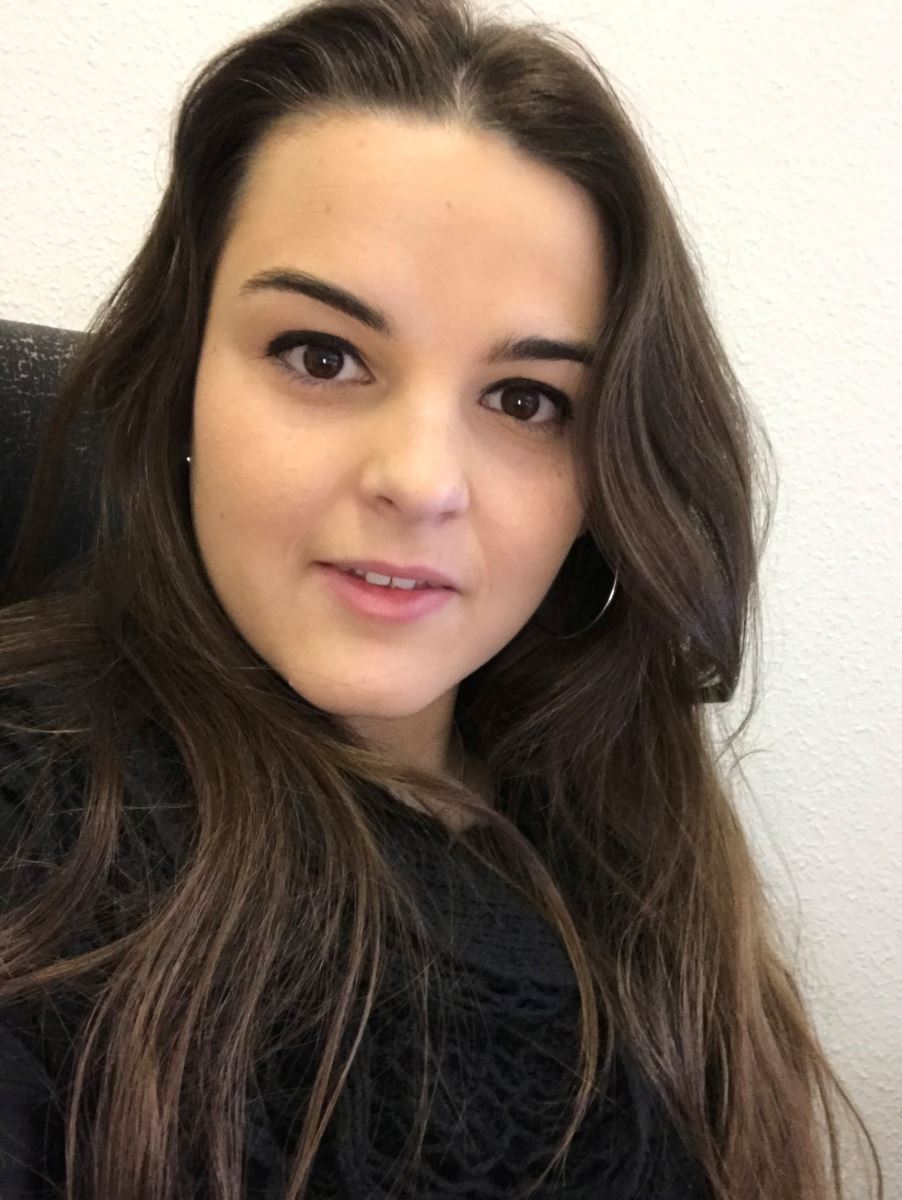
Zaira Ortiz-Laso
Design and implementation of a STEAM professional development program for Spanish high school teachers
In the last years, educators and policymakers have advocated for an integrated education approach of the STEAM disciplines (Science, Technology, Engineering, Arts and Mathematics). In Spain, this approach is promoted through the last law of education to be implemented in September 2022. The new curriculum considers STE(A)M as one out of eight competences that students must develop when finishing compulsory education at the age of 16. However, Spanish high school teachers are subject-specific, i.e., they have often been trained for teaching one STEAM discipline. In this seminar, I will describe the main issues high-school teachers have encountered when implementing STEAM Education and how such issues could be overcome through the design of a specific professional training program. The program should contain at least four main dimensions: (1) theoretical sessions, (2) experimental activities, (3) lesson designs, and (4) implementation practices. During the lesson designs and implementation practices teachers must be supervised by STEAM trainers and researchers. The results presented in this seminar are a consequence of the research conducted within the European project STEAMTeach (https://www.steamteach.unican.es/; Erasmus+).
Short bio
Zaira Ortiz-Laso holds a bachelor’s degree in Mathematics and a master’s degree in Teacher Training in Compulsory and Upper Secondary Education (also in maths), both granted from University of Cantabria (Spain). She is currently doing a PhD on mathematics education in the same university, under the supervision of Professor Diego-Mantecón. Her PhD focuses on characterizing the contribution of this discipline under the STEM approach. Zaira has participated in several EU-funded projects for promoting this education in high school regular lessons, including STEMforYouth (Horizon2020), STEAMTeach (Erasmus+), and Mathematics EduLarp (Erasmus+).
----------------------------------------------------------------------------------------------------------------------------------------
April 13th 2022, 2:30PM (GMT+1)

Farida Nurhasanah
Title: Fostering Teachers’ Professional Development through Dynamic Digital Technologies: A reflective pathway to empower mathematics teachers in the digital era
Short bio
Dr Farida Nurhasanah is a Deputy Director for Program, SEAMEO Regional Centre for QITEP in Mathematics, Indonesia. She is Lecturer and Researcher at Sebelas Maret University, Faculty of Education and Teacher Training, Mathematics Education Department. Her research interests include basic natural phenomena and mathematical thinking: Mathematical abstraction, representation, reasoning, problem-solving, and proportional thinking. Information technology and human in knowledge technology: Media and technology for teaching mathematics, and doing teacher professional development programs. Learning, Teaching and Interaction: Games for teaching mathematics. Language culture and society: STEM and STEAM activities using natural and cultural context. Physical activity, health and wellbeing: mathematics for special need students
----------------------------------------------------------------------------------------------------------------------------------------
march 31st 2022, 2:30pm (GMT+1)
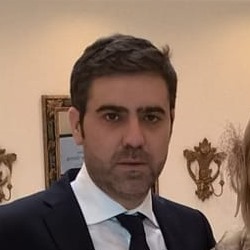
José-Manuel Diego-Mantecón
Title: Subject-specific teachers implementing STEAM activities at secondary school education: the importance of belonging to a diverse learning community
In many countries, secondary school education teachers are the result of a consecutive training program. Firstly, individuals enroll in a bachelor’s subject-specific degree (e.g., Physics) for later taking a teaching master’s degree that qualifies them to instruct a subject linked to their first degree (e.g., Maths or Physics). Secondary school education teachers (covering 12-18 years of age in Spain), are thus specialized in a specific subject. In other words, they do not receive, in their first degree nor in their master degree, interdisciplinary subject training to be able to implement an STEAM education approach in the classroom. Recent studies have shown that high school teachers with non- mathematics specialization face difficulties to foster the content of this subject in STEAM projects, while mathematics-specialized teachers try to avoid real projects where mathematics does not take a dominant role (Diego-Mantecón et al., 2021, 2022). In this seminar, I will present the strategy that the Open STEAM Group follows for naturally exploiting the implementation of the STEAM approach. This strategy focuses on receiving support from a STEAM-teaching community with teachers from diverse specializations, researchers, and professionals that assist other teachers on the design and implementation of integrated activities.
Diego-Mantecon, J. M., Prodromou, T., Lavicza, Z., Blanco, T. F., & Ortiz-Laso, Z. (2021). An attempt to evaluate STEAM project-based instruction from a school mathematics perspective. ZDM Mathematics Education, 53(5), 1137-1148. https://doi.org/10.1007/s11858-021-01303-9
Diego-Mantecón, J. M., Ortiz-Laso, Z., & Blanco, T. F. (2022). Implementing STEM projects through the EDP to learn mathematics: the importance of teachers’ specialization. In P. R. Richard, M. P. Vélez, & S. Van Vaerenbergh (Eds.), Mathematics Education in the Age of Artificial Intelligence (pp. 399-415). Springer. https://doi.org/10.1007/978-3-030-86909-0_17
Short bio
Professor Jose-Manuel Diego-Mantecón studied pure mathematics at Royal Holloway University of London and received his M.Phil. and Ph.D. degrees in mathematics education from Cambridge University (UK). He has a large experience on international projects. He was part of the Millennium Mathematics Project (MMP) at the University of Cambridge, directed by the theoretical physicist and mathematician John Barrow. As part of the MMP, Jose was also responsible for several years of the Spanish version of the Maths Thesaurus Project— a multilingual and interactive mathematics dictionary. Jose has an extensive background on the evaluation of comparative studies. In 2012 developed a consistent instrument to evaluate student mathematics-related beliefs in Spain, Slovakia, Ireland, England, and Cyprus (Diego-Mantecón, 2013). Jose has collaborated with the TIMSS project, being the Spanish representative for designing the mathematics items for TIMSS 2015. Nowadays, Jose participates in five international STEM-related projects: KIKS (Eramus +), STEMforYouth (H2020), EduLarp (Erasmus+), STEAMTeach (Erasmus), and Aut0Math (Eramus +). He is also director of the Department of Mathematics, Statistics and Computation at Universidad de Cantabria, and head of the Open STEAM Group: https://www.opensteamgroup.unican.es/
REGISTRATION: https://forms.gle/iMKM7UahUWpHWa6t5
----------------------------------------------------------------------------------------------------------------------------------------
----------------------------------------------------------------------------------------------------------------------------------------
2020/2021
June 2nd 2021, 3:00pm (GMT+1)
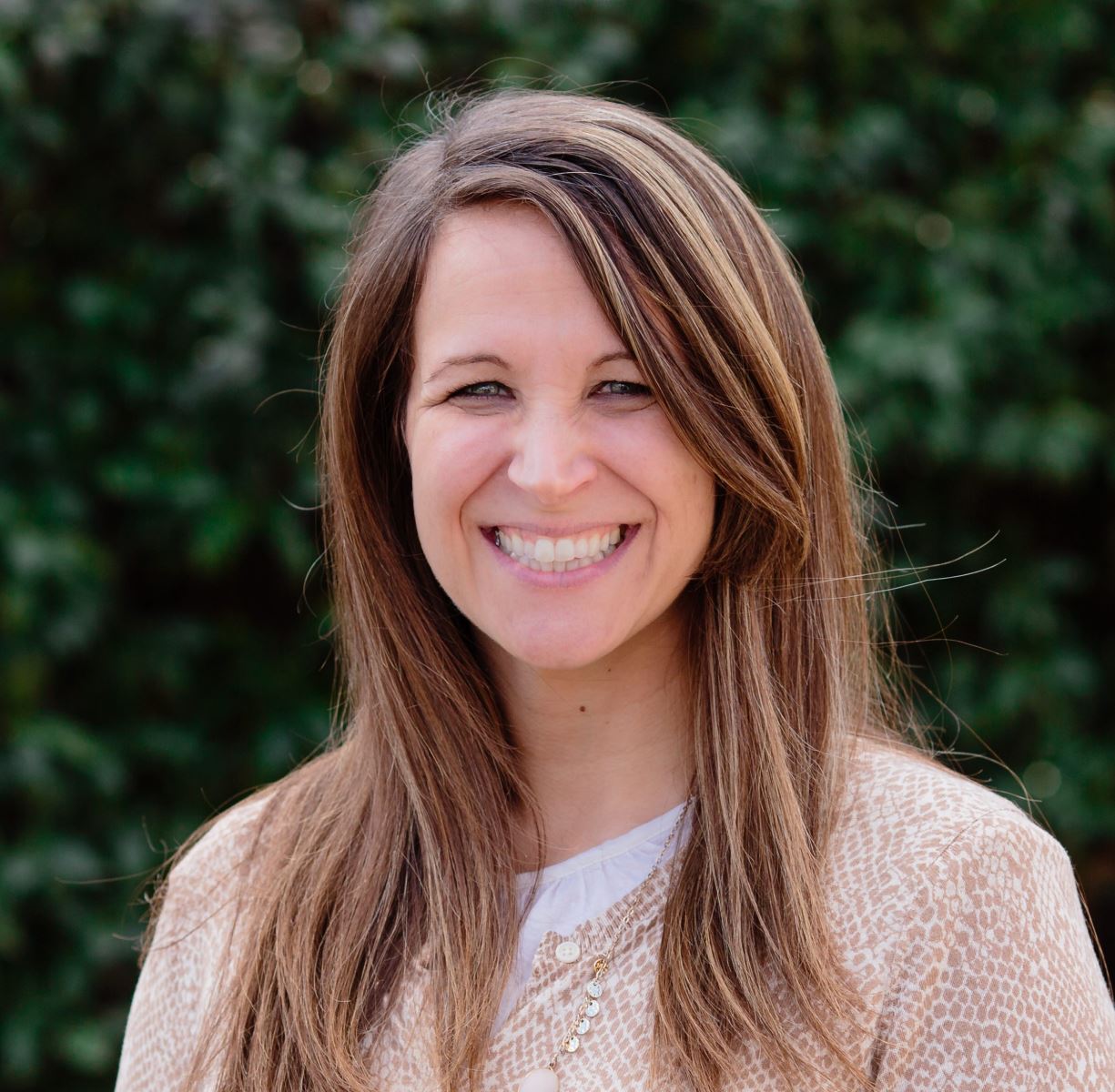
Angel Krause
Title: Caring for Students in the Online Setting: Examining Practices which Encourage Students to be their Real Selves
More than ever during times of crisis students need to be able to project their real selves during their learning experience, being emotionally and socially present. The concept of social presence within the Community of Inquiry framework is described as “the ability of participants in a CoI to project themselves socially and emotionally, as ‘real’ people (i.e., their full personality), through the medium of communication being used” (Garrison et al., 2000, p. 94). Richardson and Swan (2003) suggested that high perceptions of social presence correlated to perceived learning and satisfaction with the instructor. Social presence at its core is participants of the community of inquirers being human, being emotionally real (Garrison et al., 2000).
The presentation will review three themes that emerged from a multiple case study of how three Hispanic women described their experiences of being their real selves while completing fully online courses. They included a) the ways professors honored students’ assets, b) access to other students/cohort and the instructor through pedagogical choices, and c) consistency in course design and facilitation. The role of synchronous sessions, having real access to the instructor v. pseudo access, and the predictability of course design and facilitation all contributed to the participants' ability to be their real selves. Perceptions of instructors exhibiting care will be discussed, along with perceptions of lack of care. Suggested future practices for instructors and universities based on key findings will be presented. Additionally, an inquiry activity will guide attendees to evaluate their current care practices from a student’s perspective.
Garrison, R., Anderson, T., & Archer, W. (2000). Critical inquiry in a text-based environment: Computer conferencing in higher education. The Internet and Higher Education, 2–3, 87–105.
Richardson, J. C., & Swan, K. (2003). Examining social presence in online courses in relation to students’ perceived learning and satisfaction. JALN, 7(1), 68–88.
Short bio
Born and raised in California’s diverse Central Valley, Dr. Angel Krause began her educational journey teaching high school health and social sciences. Moving from teaching in the brick and mortar classroom to a fully online setting in 2006 required her to be an early adopter of tools that are now common (i.e. synchronous tools). In 2010 she was hired at her alma mater, Fresno Pacific University, to direct the Clear Credential program working with beginning teachers and to serve as the Assistant Director in their fully online Masters in Curriculum. Now serving as the Teacher Education Intern Director, she facilitates blended and fully online coursework in curriculum, classroom management, and health education. With 15 years of experience in online education and her direct work with teachers in P-20 settings, she has experienced a unique convergence of theory and practice encouraging continued learning and growth as an educator. She holds secondary credentials/licensures in social sciences and health, an M.A. in Education: Curriculum & Teaching with a focus in Technology, and an Ed.D. in Educational Leadership: Instructional Design and Development.
-------------------------------------------------------------------------------------------------------------------------------------------
MAY 19th 2021, 3:00pm (GMT+1)

Janika Leoste
Title: How to make TEL Innovations sustainable
Rapid technological advances lead educational systems and their stakeholders to initiate various technology-centered innovations with the aim of enhancing teaching and learning practices with technology, i.e. of introducing Technology Enhanced Learning. Research indicates that many of these TEL innovations fail to become sustainable (i.e. they do not change neither teachers' teaching practices nor students' learning practices). An unsustained innovation, however, often means that valuable invested human and material resources become wasted.
My presentation aims to share pieces of information about designing and implementing TEL innovations with a greater potential to sustainability. The focus of this discussion is on identifying the factors that influence TEL innovation sustainability, and on apprehending their relevance in different TEL innovation process stages.
Short bio
Janika Leoste is a PhD candidate at the School of Educational Sciences of Tallinn University (Estonia). Her research includes the sustainability of technology enhanced educational innovations and didactics on STEAM teaching in all stages of education, including using robot integrated learning in early childhood and primary education.
----------------------------------------------------------------------------------------------------------------------------------------------------------
MAY 5th 2021, 3:00pm (GMT+1)

Paul Magnuson
Title: Student Self-Regulation in Action
Building on work in the agile mindset (www.edgility.school; www.peakchallenges.ch; www.arcforschools.org), the Leysin American School runs classes across grades 8-12 to first and foremost help students practice self-regulation, ground content areas like the arts, STEM, and entrepreneurship.
The goals of these courses are contained in an acronym based on the French for baking (CUIRE): Collaboration, Uplift, Imagination, Respect, and Effort. The courses are student-directed, with input and support from teachers in the role of coach, cheerleader, safety manager, team member, tutor, or any other appropriate role beside all-knower, leader, and final arbiter of achievement (the courses are in fact ungraded).
We'll introduce the courses with some student voices, discuss how we got where we are and our connection with the agile mindset, and why we believe letting go of curricular and instructional preconceptions are so important.
Interesting for participants is the location of these courses in a traditional school and curriculum - the place where most of our work focused on changing current assumptions needs to take place, since traditional describes the overwhelming number of our schools across the world.
Short bio
Paul Magnuson leads a research center using teacher action action research as professional development.The research center welcomes international visiting scholars annually and travels to other schools and organizations to work on innovative teaching and learning. Paul is a member of the Scrum Alliance team that developed the Agile Certified Educator, a new certification of Scrum Alliance. He is also a founding member of the Agile Research Consortium for Schools, a one-stop website for all things agile in ed. The school's research center is www.las.ch/laser and Paul's small personal consulting (and books for children) can be found at www.magnusonedstudio.ch. Paul is also an instructor for Moreland University.
----------------------------------------------------------------------------------------------------------------------------------------------------------
April 21st 2021, 3:00pm (GMT+1)

Tony Houghton
Title: Utilising Industry Hothousing Practices for STEAM Collaborative Problem Solving in Schools and STEAMTEACH
Short bio
----------------------------------------------------------------------------------------------------------------------------------------------------------
April 7th 2021, 3:00pm (GMT+1)
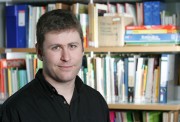
Yves Kreis
Title: Transition from traditional to hybrid to online courses for pre-service elementary school teachers at the University of Luxembourg Sub Title: STEAM integrated approach in the project MathEduc @ BScE
During the past year, technology has started enabling new forms of teaching and learning in higher education in Luxemburg. Thus, to be able to work more closely with elementary school pre-service teachers, we shifted our mathematics education course during the past years to flipped classroom approaches and worked with synchronous and asynchronous teaching on- and off-campus modes. Furthermore, due to the restrictions of the COVID-19 pandemic, we decided to shift our teaching to entirely online flipped classroom approaches together with outdoor mathematical trails with STEAM integrated assessments. This final shift to a fully online flipped classroom, with self-paced, student-centred teachings and learnings, showed strong positive effects on pre-service elementary school teachers in mathematics teaching. In this presentation, we will outline results of this transition period and describe results from different studies.
Short bio
Yves Kreis is Senior Lecturer in the research area Teaching & Learning of the Department of Education and Social Work of the Faculty of Humanities, Education and Social Sciences of the University of Luxembourg. He has a PhD in Educational Sciences (Dr. paed.) of the University of Education Ludwigsburg (Germany).
University of Fribourg (Switzerland) where he worked as an undergraduate assistant for 3 years. Prior to joining the University, he worked for several years as teacher in various Luxembourgish Primary Schools, and as Mathematics teacher in serving in several Luxembourgish Secondary Schools.
----------------------------------------------------------------------------------------------------------------------------------------------------------
MARCH 17th 2021, 3:00pm (GMT)
.jpg)
Chris Brownell
Title: Can University Admission Policy Regarding Mathematics Change the World?
There is both the need for and the seeds of a revolution in Secondary Mathematics Curriculum. The pandemic has revealed how rapid advances in technology, decline of interest, increase in the complexity of the problems the next generation faces, and dramatic inequities of access are combining to call into question the narrowed focus on preparation for calculus of secondary maths programs. Combine these with the unchecked proliferation of mal-dis-information and outright lies that are the fodder of extremist factions of every ilk and we soon see that we need to assist children in the navigation of a world more intensely driven by data than ever before. In this talk I will argue that the Academy can aid the world in preparing the next generations to evolve into the future, at least in part, by broadening what it considers as the basics of mathematics and end the hegemony of calculus.
Short bio
Christopher Brownell Ph.D. Associate Professor of Mathematics and Mathematics Education working mainly with pre-service mathematics teachers. After earning his doctorate in his 50s he is now a Director of the Mathematics & STEAM Education Master’s degree programs at Fresno Pacific University in California. Multi/Transdisciplinary studies in STEAM and the growing role of Data Science in education are his current research focuses. He is co-author of the popular book: Math Recess Playful Learning in an Age of Disruption.
----------------------------------------------------------------------------------------------------------------------------------------------------------
MARCH 3RD 2021, 3:00pm (GMT)
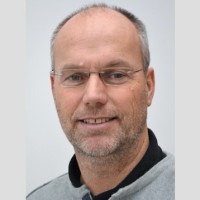
Morten Brekke
Title: High fail rate inspired math project – How MatRIC support really helps during “lockdown”
This talk is divided in two parts:
Part 1 will describe a project initiated by MatRIC (Centre for Research, Innovation and Coordination of Mathematics Teaching www.matric.no). In 2017 we started a project in corporation with the School of Business and Law at our University. A forty percent fail rate in mathematics for future economists inspired MatRIC to get to the core of the problem: insufficient prior knowledge. I will describe how we now are down to 11 percent fail rate and improved grades. It is a mix of blended learning, pre-test (diagnostic), pre-courses, workshops, assessment-tool and improved student support.
Part 2 will describe how we trough experience are able to support our students during the corona lockdown. Lecturers and tutors in mathematics are just keystrokes away. Teaching and MatRIC's drop-in for mathematics support is undertaken on digital platforms.
Short bio
Professor Brekke is Vice Rector for Education for the period 1 August 2019 - 31 July 2023 at University of Agder.
As vice rector for education, Brekke heads the Academic Affairs Committee. He also leads the work developing a strategy in the priority area Learning and Education for the Future, with special emphasis on developing a future oriented educational leadership.
Brekke has been working at UiA since 1993. Throughout his career, he has focused on quality and development in teaching. He has a central role in MatRIC, an international centre for mathematics didactics, which has been appointed a Centre for Excellence in Education.
He wants to make room for development and testing of different teaching methods which will improve the quality of learning outcomes - and also disseminate the knowledge created.
Brekke has long been a role model in the pedagogical uses of video and other digital technologies in mathematics teaching, and he has published several articles on the topic. In 2018, he was awarded Excellent Teaching Practitioner as the first recipient at UiA.
Brekke has a goal of improving students’ achievements; he therefore emphasises quality culture and systematicity to improve quality in the field of education. He is particularly concerned with building a good and inclusive learning environment.
In keeping with the university’s ambitions for the skills reform “Learning throughout life”, Brekke strives to highlight and strengthen alumni relations and continuing education at UiA.
Brekke was formerly a college lecturer, university lecturer and assistant professor and received his Cand. Scient. in theoretical astrophysics from the University of Oslo.
----------------------------------------------------------------------------------------------------------------------------------------------------------
FEBRUARY 24th 2021, 3:00pm (GMT)
.jpg)

Noah Dana-Picard Sara Hershkovitz
Title: Golden Ratio: developments towards abstraction from a STEAM perspective
The Golden Section is a mathematical concept that is one of the most famous examples
of connections between mathematics and the arts, mostly visual arts. A less known issue is the connections with non-visual arts and with other scientific domains.
We offer a graded approach from concrete appearances of the Golden Section towards more abstract occurrences, from geometry to space studies and establishing calendars.
This STEAM approach relies on a technology-rich environment. It enables educators to incite their students to explore, discover, conjecture and reveal new insights into sometimes traditional topics. Both educators and students may have benefit of the specific cultural background of the students.
Short bio
Thierry (Noah) Dana-Picard is a Professor of Mathematics at the Jerusalem College of Technology, an academic institution training high-tech engineers and managers. He has two PhDs, from France in Algebraic Geometry, and from Israel in Non-Commutative Algebra. Noah is an active researcher in Mathematics and STEAM Education, domains in which he publishes regularly. His has special interest in Mathematics in a technology-rich environment and its influence in education, and in Mathematics and Culture. He is a member of the editorial board of several journals, chaired international conferences and special sessions, and is always happy with international collaborations.
Sara Hershkovitz retired from The Center for Educational Technology (CET) in Israel, after 4 decades. For 27 years (till 2017) she was head of the Mathematics Department and led the development of dozens of CET’s Math textbooks for primary and secondary schools, as well as the interactive digital content and digital textbooks, and the development of the online course in Math for high school, which is a part of CET’s Virtual High School (VHS). During 2017 to 2020, Prof. Hershkovitz was the head of the assessment and Evaluation Department, which was responsible for national and international exams in Israel and the research led by CET. She published books and research papers in the field of Problem Solving, Mathematics Education and SGTEAM Education. She is now the Head of the Mathematics Department at Levinsky Academic College in Tel Aviv.
----------------------------------------------------------------------------------------------------------------------------------------------------------
FEBRUARY 17th 2021, 3:00pm (GMT)

Martin Andre
Title: Integrating education for sustainable development into statistics classes
In my talk, I will discuss our work on introducing statistics concepts in schools and how statistics teaching can be connected to sustainable development with real data for students in schools. In particular, we will discuss that statistics is becoming crucial in our current data-driven society to explore numerous phenomena that are too complex to comprehend without exploring and visualising data. Citizens need to understand statistics about issues concerning essential parts of their lives such as the spread of a pandemic or climate change in order to responsibly participate in a prosperous development of our civilization. With our research projects we try to find out more about young students’ intuitive approaches to statistics when visually analysing data. We found that certain kinds of data visualisations are especially capable to provoke reasoning of statistical concepts such as ideas of centre, spread and covariation. Based on these intuitive visual approaches to statistics, another aspect of our design-based research projects is concerned with statistical modelling processes. We developed a learning trajectory where middle school students were engaged in analysing real-world data to explore sustainable development of various countries and to build a model for this phenomenon. Results show that students’ statistical investigative learning processes should feature active participation in constructing knowledge of formal statistical concepts; and students should adopt and fit their intuitive knowledge to formal concepts using methods of visual data analyses. Thus, I will outline some diverse opportunities to foster students’ intuitive understanding of statistics and sustainable development issues simultaneously.
Short bio
Dr Martin Andre is a senior lecturer and researcher in mathematics education at the University College of Teacher Education Tyrol, Austria. He has experience of teaching mathematics education to pre-service teachers and in-service teachers within primary, secondary, and post-graduate programs. His interests focus on the relationship between technology and mathematical thinking in statistics education, integration of digital technologies in the teaching of mathematics, and Education for Sustainable Development (ESD). He is working on research projects related to integration of ESD into statistics education and technology integration into mathematics education.
----------------------------------------------------------------------------------------------------------------------------------------------------------
FEBRUARY 3RD 2021, 3:00pm (GMT)
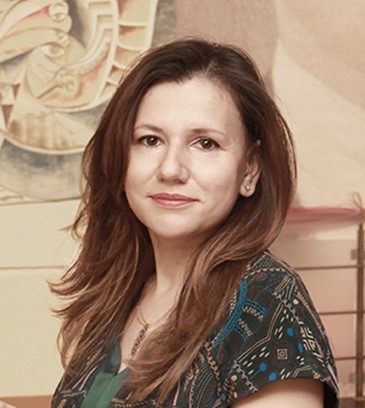
Ebru Taylan
Title: How can we adapt agile mindset into science laboratory classes and research projects of students?
Both in high schools and higher education, laboratory applications are crucial to learn science better. While doing a project or an experiment in the lab, students are trying to learn and apply an information in a limited time and mostly working with teams. Due to this complexity, it comes harder to have a high efficiency. In this session, you will join my journey of experiences and find out some examples how we could apply problem based learning system or eduscrum in small or larger group of students.
Short bio
Ebru Taylan is the founder of Young Scientist Academy company which aims to contribute to the development of the scientific, practical, learning and questioning competencies of young people by bringing the sciences under the roof of Biotechnology easily and economically.
She completed her undergraduate degree in Biochemistry / Biotechnology department at Ege University in 2005. By working at Dokuz Eylul University (DEU) Research Laboratory for ten years, she completed her master and doctorate education in the Institute of Health Sciences, Dokuz Eylül University. During the course of her education, she worked as a research assistant in the Department of Biochemistry at the Faculty of Medicine. She took part in the laboratory applications of the students of the Faculty of Medicine during the experimental and reporting processes of numerous TÜB?TAK 1001, 1003 research projects including her doctoral thesis. She completed her research at the German Diabetes Center (DDZ) by receiving TÜB?TAK 2214a foreign research scholarship with a project she has undertaken in the last year of her doctorate.
In 2018, she worked as Associated Prof. at Izmir University of Economics, Department of Genetics and Bioengineering.
For the last three years, her company has been carrying out studies with the aim of enabling young people to develop science and technology at an earlier age to enable them to discover their potential and to become the preferred solution partner in educational institutions.
----------------------------------------------------------------------------------------------------------------------------------------------------------
JANUARY 27th 2021, 3:00pm (GMT)

Nuno Escudeiro
Title: Mainstreaming Blended Mobility: tearing down barriers to international education
Blended mobility has an intrinsic aptitude to overcome most barriers to international mobility that our students might face. Such teaching methodologies significantly promote equity in internationalization of education.
This session raises awareness to blended mobility and provides the required inputs to set up and run blended mobility courses. We will follow a thrilling path through the Blended Education World aiming to foster the take-up of Blended Mobility as an effective way to promote international exposure during studies.
By the end of the session you will have all the information, the tools and the contacts you might need to setup and run your own blended mobility course from scratch.
Short bio
Nuno Escudeiro is a professor at the School of Engineering of the Polytechnic Institute of Porto, from the Informatics Department. He has been developing R&I work in two different areas, Engineering Education and Machine Learning.
Currently, Nuno Escudeiro assumes the following positions in the field of European Higher Education:
- Coordinator of the European University ATHENA
- Vice-President of the European Association of Erasmus Coordinators (EAEC)
- Vice-President of the European Association of Career Guidance (EACG)
- Blended-AIM blended mobility course coordinator
- Praxis network coordinator - European Center for Project / Internship Excellence
- Coordinator of the European Coordination Office Portuguese at EAEC
- Member of the advisory board of INNOTECS - International Network of Technical Schools
- Member of the advisory board of the Sector Skills Alliance EO4GEO
He completed his doctorate in Informatics Engineering at the Faculty of Engineering at the University of Porto, a master's degree in Data Analysis and Decision Support Systems at the Faculty of Economics at the University of Porto and a degree in Electrical and Computer Engineering at Instituto Superior Técnico, University of Lisbon.
----------------------------------------------------------------------------------------------------------------------------------------------------------
JANUARY 20th 2021, 3:00pm (GMT)
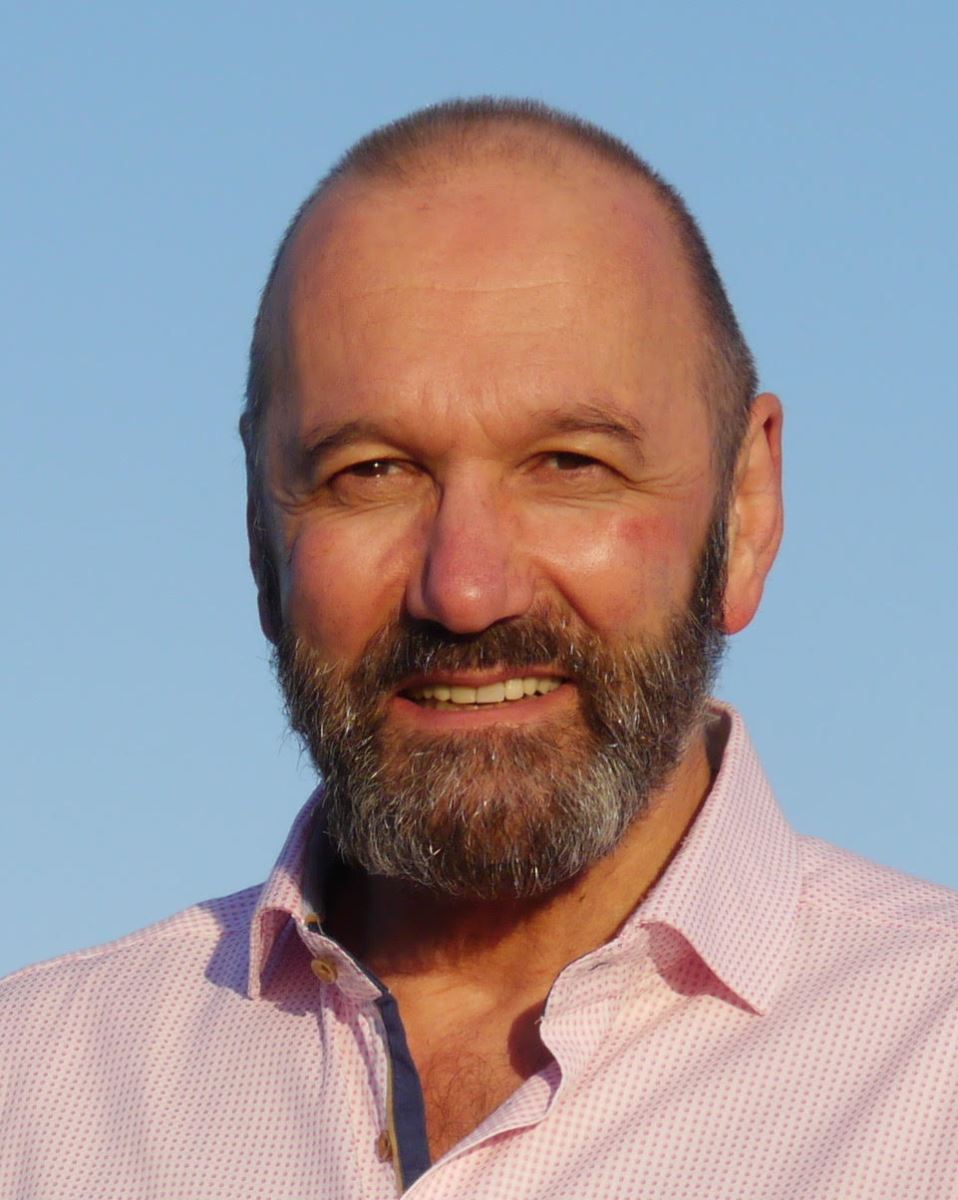
Willy Wijnands
Title: Transforming Education with eduScrum
Short bio
As a passionate teacher, I want to give ownership and responsibility for their own learning process to the students and everyone I train. But most importantly, I give them trust and offer them the freedom and the space they need to work together in teams, while being there to facilitate and coach them. They become more independent from the teachers, and they have more fun. In addition to that, I want students to determine their own ‘why’ for their learning.
So they become empowered and responsible for what they do, because they are more engaged, committed. They are also more productive, create better results and discover who they are and what their abilities are through the development of their personality. Through this process they become more prepared for the future by becoming Agile lifelong learners with well-developed twenty-first-century skills. It is such a wonderful to see them developing themselves!
I want transform education with eduScrum. By training teachers, face to face and online, all over the world together with good passionate trainers, I support them to implement Agile in education.
I give the students ownership of their own learning process, but most important trust. The students take their responsibility for what they do and I give them liberty and space. The effect is that students are engaged, more productive and their results are better; It is such a wonderful to see them developing themselves!’
----------------------------------------------------------------------------------------------------------------------------------------------------------
JANUARY 13th 2021, 3:00pm (GMT)
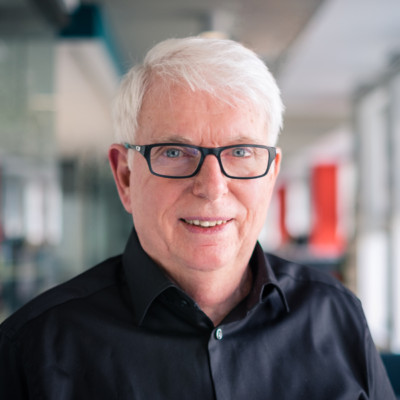
Jeff Sutherland
Title: Scrum@Scale Origins Story to an Education setting
Short bio
Jeff Sutherland, the inventor and Co-Creator of Scrum has worked with thousands of companies deploying Scrum and recently launched two global trainer programs for Scrum Inc Scrum Trainers and Certified Scrum@Scale Trainers in addition to creating two independent companies, Scrum Inc Japan and Scrum@Scale LLC.
Jeff started his career as a fighter pilot in the U.S. Air Force where he achieved Top Gun status in 1967 and flew 100 combat missions over North Vietnam.
After 11 years as a pilot, he joined the faculty of the University of Colorado Medical School where he received his Doctoral degree. As Asst. Prof.of Radiology, Biometrics, and Preventive Medicine he co-founded the Center for Vitamins and Cancer Research under the sponsorship of Nobel Laureate Linus Pauling and for eight years was the Principle Investigator of a National Cancer Center research grant that ran all IT programs and research for the Colorado Regional Cancer Center.
In 1983 he joined a banking company that operated 150 banks throughout North America where he was VP of Advanced Systems and General Manager of their ATM Business Unit. Noticing that waterfall processes at the bank were not working, he implemented the first prototype of Scrum@Scale for organizational transformation of a business unit.
He has been VP of Engineering and CTO or CEO of eleven software companies. In the first four companies he prototyped Scrum and in 1993 in the fifth company created Scrum as we now see it used in 74% of Agile software companies in over 100 countries. He was a signatory of the Agile Manifesto in 2001.
In 2006, working as Senior Advisor to OpenView Venture Partners and their portfolio companies, Sutherland established his own company, Scrum, Inc. now recognized as the premiere source of Scrum Training in the world. His latest book, Scrum: The Art of Doing Twice the Work in Half the Time," describes how he used his background and experience to create the most widely used Agile practice in industry today.
----------------------------------------------------------------------------------------------------------------------------------------------------------
JANUARY 6th 2021, 3:00pm (GMT)

Zsolt Lavicza
Title: STEAM education approaches and technological innovations to foster creativities in STEM teaching and learning
Besides tackling challenges and disruptions caused by digital technologies in schools, there is also a growing emphasis for encouraging creative thinking in education, innovating pedagogies and develop connections among subjects. Activities focusing on creative processes, rather than concentrating on achieving only results for posed problems, are being designed and trialled by innovative groups around the world. In my talk, I will introduce ideas and examples for technological, pedagogical and policy innovations involving STEM to STE-A-M (by the inclusion of Arts in a broader sense of creation and creativities) transitions and how these approaches could be utilised to teach and connect mathematics with other subjects. These examples will include STEAM research with mathematical foci from collaborating with the Experience Workshop Movement; studies related to GeoGebra and its new developments such as Augmented Reality, 3D Printing, Machine Learning and Mobile experiments; developing students’ mathematical skills through robotics and connecting digital and physical worlds; and possibilities to detect and nurture creative thinking processes from Big Data. An overview of such studies could offer new insights into developments of creativities, innovations for STEM teaching and learning, and opportunities for nurturing further collaboration in these areas.
Short bio
Professor Zsolt Lavicza (BA, BA, MS, MA, MPhil, PhD)
After receiving his degrees in mathematics and physics in Hungary, Zsolt began his postgraduate studies in applied mathematics at the University of Cincinnati. While teaching mathematics in Cincinnati he became interested in researching issues in the teaching and learning mathematics. In particular, he focused on investigating issues in relation to the use of technology in undergraduate mathematics education. Afterwards, both at the Universities of Michigan and Cambridge, he has worked on several research projects examining technology and mathematics teaching in a variety of classroom environments. In addition, Zsolt has greatly contributed to the development of the GeoGebra community and participated in developing research projects on GeoGebra and related technologies worldwide. Currently, Zsolt is a Professor in STEM Education Research Methods at Johannes Kepler University’s Linz School of Education. From JKU he is working on numerous research projects worldwide related to technology integration into schools; leading the doctoral programme in STEM Education at JKU; teaching educational research methods worldwide; and coordinates research projects within the International GeoGebra Institute.
----------------------------------------------------------------------------------------------------------------------------------------------------------
December 16th 2020, 3:00pm (GMT)
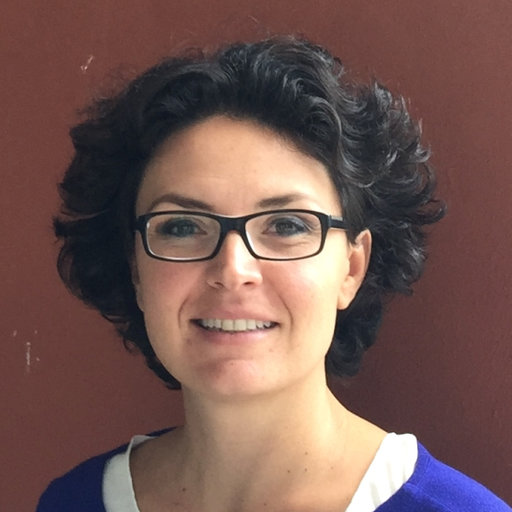
Selay Arkun Kocadere
Title: Gamification: A Way to Add Fun in Learning
Although "gamification" dominates the headlines nowadays, there is a contradiction in terms. Therefore drawing the line between game and gamification will be a smooth beginning. Following the daily life examples of gamification, the instructional implementations will be shared and the transfer of the gameplay concept into classes will be discussed. The focus will be on practical tips for designing gamification for teaching.
Short bio
Selay Arkün Kocadere is an associate professor at Hacettepe University in Ankara, Turkey. Following her bachelors’ degree in Mathematics Education, she received her M.Sc. and PhD in Computer Education and Instructional Technology. Dr. Kocadere worked as an instructional designer in the private sector before moving into academics. Interested in online learning, technology-enhanced mathematics education, mentoring, and educational games, Dr. Kocadere’s recent research focuses on gamification. “Educational Game Design”, and “Gamification in Education” are included in taught courses, in addition to IT in Education, Human-Computer Interaction, Distance Education. She managed two national and three international projects some of which are related to educational mobile games, and gamification. In addition to her ongoing projects and master courses on gamification, she sets up workshops and gives seminars about gamifying learning.
-------------------------------------------------------------------------------------------------------------------------------------------------------------------------
December 9th 2020, 3:00pm (gmt)

Philippe Longchamps
Title: Sustainable & Integrative Active Learning Methodologies: a Case for Holistic Teaching in Future-Making Education
When the evolution of technology and engineering is taught in an integrative fashion from an early age, it may literally be sowing seeds of creativity in students’ minds and provide an opportunity to teach using hands-on activities for a more sustainable learning experience. When new concepts related to Science, Technology, Engineering, Arts and Mathematics (STEAM) are integrated, adapting a transdisciplinary pedagogy together with an active learning approach, ideas that might have a considerable impact on our shared future can flourish in the students’ imagination. With examples provided from the methods I use at Bilingual Montessori School of Lund in Sweden, I will attempt to demonstrate how a variety of school subjects ought to be integrated chronologically to enhance the understanding of the creative process that led to inspiring technological evolutionary patterns. Endeavouring to demonstrate that by using a holistic approach while using 4DFrame and other materials, it is possible to stimulate analytical and creative thinking, but most importantly, to develop a deeper understanding about historical and technological concepts and their relationships to one another, while creating a stimulating transdisciplinary teaching and learning environment. Indeed, I will argue in this seminar that teachers can develop their students' interest for engineering while using a chronological historical narrative where technical innovation is at the heart of the evolution of civilization.
Keywords: 4DFrame, Active learning, Engineering, History, Technology, Pedagogy, Convergence, Creativity, Sustainability
Short bio
Philippe Longchamps is the overseas Director of the ISAS, Teacher of the Year in Sweden 2020, and Head of Department at Bilingual Montessori School of Lund
-------------------------------------------------------------------------------------------------------------------------------------------------------------------------
November 25th 2020, 3:00pm (GMT)
.jpg)
Hana Siddiquee
Title: What is Agile and can it help improve student engagement in higher education?
We will be discussing the following:
• What is Agile Education and where can we use it?
• What are your strategies to engage students in learning?
• Why are Agile strategies vital for Higher Education Institutions?
Short bio
Prof. Hana Siddiquee is the founder of Agile in Education USA and President at Bohnishikha. She's a pioneer in the usage of Agile in Education, Scrum, eduScrum, and L-EAf in higher education in the USA. She has implemented Agile methods into more than 15 graduate and undergraduate courses. She is a business faculty and a program developer with over ten years of teaching experience. She's conducting research in Agile Scrum in Higher Education, eduScrum in Higher Education, Experiential team building with Scrum, Women in Agile Leadership, and Poverty Alleviation with Innovative educational programs.
-------------------------------------------------------------------------------------------------------------------------------------------------------------------------
instituto superior de engenharia do porto
Rua Dr. António Bernardino de Almeida, 431
4249-015 Porto, Portugal


















